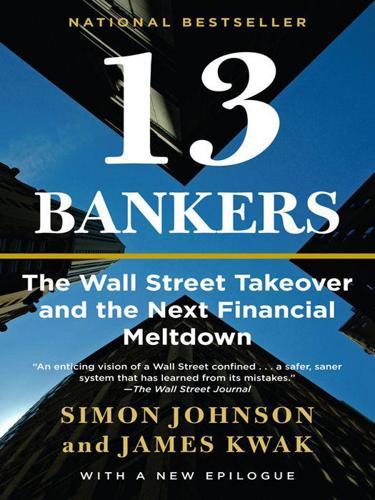
13 Bankers: The Wall Street Takeover and the Next Financial Meltdown
by
Simon Johnson
and
James Kwak
Published 29 Mar 2010
—F. Scott Fitzgerald, The Great Gatsby1 Contents Cover About the Author Other Books by This Author Title Page Copyright Dedication Introduction: 13 Bankers 1 Thomas Jefferson and the Financial Aristocracy 2 Other People’s Oligarchs 3 Wall Street Rising: 1980– 4 “Greed Is Good”: The Takeover 5 The Best Deal Ever 6 Too Big to Fail 7 The American Oligarchy: Six Banks Epilogue Notes Further Reading Acknowledgments INTRODUCTION 13 Bankers My administration is the only thing between you and the pitchforks. —Barack Obama, March 27, 20091 Friday, March 27, 2009, was a lovely day in Washington, D.C.
…
As Bianco put it, “What sets Salomon apart is the sheer scale on which it oper-ates in the markets, reflecting an appetite for risk unrivaled among financial middlemen.” Four years later, Liar’s Poker, Michael Lewis’s memoir of his years at Salomon, would cement its status as the paradigmatic bank of the 1980s, the same decade that produced the original Oliver Stone Wall Street movie, with Gordon Gekko’s famous “Greed is good” speech. Looking back, however, Salomon seems so … small. When the Business Week story was written, it had $68 billion in assets and $2.8 billion in shareholders’ equity. It expected to earn $1.1 billion in operating profits for all of 1985. The next year, Gutfreund earned $3.2 million.3 At the time, those numbers seemed extravagant.
…
* In the interest rate swap example above, the face value, or notional value, is $100 million. However, the amount of money that changes hands is much smaller; if, at the end of a given year, the floating rate is 7.25 percent, then the dealer only pays the company 0.25 percent (the difference between the floating and fixed rates), or $250,000. 4 “GREED IS GOOD” The Takeover Derivatives have been an extraordinarily useful vehicle to transfer risk from those who shouldn’t be taking it to those who are willing to and are capable of doing so.… The vast increase in the size of the over-the-counter derivatives markets is the result of the market finding them a very useful vehicle.
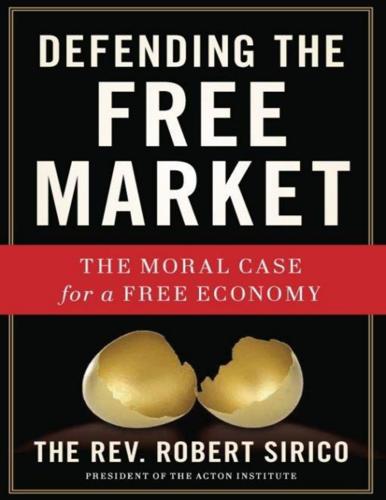
Defending the Free Market: The Moral Case for a Free Economy
by
Robert A. Sirico
Published 20 May 2012
All he can do is become a thief or a cream-skimming government insider. Under capitalism, he has another option: he can excel in a socially useful business. In this way, capitalism provides the greedy person a socially beneficent alternative to exploitation. Remember villainous business executive Gordon Gekko in Oliver Stone’s 1987 film Wall Street? “Greed is good,” he claimed. Unfortunately, many real-life defenders of capitalism argue along the same lines. Greed, they claim, is the stimulant that drives the economy. And critics of the free market readily agree—they hate capitalism because they believe it fosters greed. I say a plague on both their houses.
…
Greed is known as one of the seven capital sins because greedy people will go to great lengths to obtain their object, committing other sins on the way to getting what they want—even to the point of using fellow human beings as instruments, as though they were not creatures with intrinsic value and dignity, ends in and of themselves rather than the mere means to another person’s wishes. The opposite of the greed-is-good error is the notion that desire of any kind is wrong. But the capacity to desire is actually a good thing that’s built in to the human condition. To desire to live better than our ancestors, to give our children a better life than we have had, to be more comfortable ourselves than in the past—these are not immoral things.
…
This snapshot of Francois Michelin does not, of course, disprove the existence of unprincipled Gordon Gekkos in the world of high finance and enterprise. But there is nothing in business or the market economy that mandates a selfish dog-eat-dog ethic. The Apostle of Selfishness We began this chapter with Gordon Gekko announcing that greed is good. As he goes on to say to the shareholders of the fictional Teldar Paper Corporation, “Greed clarifies, cuts through, and captures the essence of the evolutionary spirit. Greed, in all of its forms—greed for life, for money, for love, knowledge—has marked the upward surge of mankind. And greed—you mark my words—will not only save Teldar Paper, but that other malfunctioning corporation called the U.S.A.”

Evil Geniuses: The Unmaking of America: A Recent History
by
Kurt Andersen
Published 14 Sep 2020
—ANDY GROVE Contents Cover Title Page Copyright Epigraph Introduction Part One: A Brief History of America Chapter 1: Land of the New: America from 1600 to 1865 Chapter 2: Land of the New: An Economic History from the 1770s to the 1970s Chapter 3: Approaching Peak New: The 1960s Part Two: Turning Point Chapter 4: The 1970s: An Equal and Opposite Reaction Chapter 5: The 1970s: Liberalism Peaks and the Counterrevolution Begins Chapter 6: The 1970s: Building the Counter-Establishment Chapter 7: The 1970s: From a Bicentennial Pageant to a Presidency Chapter 8: The 1970s: Neoliberal Useful Idiots Part Three: Wrong Turn Chapter 9: The Reagan Revolution Chapter 10: Raw Deal: What Happened in the 1980s Didn’t Stay in the 1980s Chapter 11: The Rule of Law Chapter 12: The Deregulation Generation Chapter 13: The Culture of Greed Is Good Chapter 14: How Wall Street Ate America Chapter 15: Workers of the New World, You Lose Chapter 16: Insecurity Is a Feature, Not a Bug Chapter 17: Socially Liberal, Fiscally Conservative, Generally Complacent Chapter 18: The Permanent Reagan Revolution Chapter 19: The 1990s: Restrained and Reckless Part Four: Same Old Same Old Chapter 20: Rewind, Pause, Stop: The End of the New Chapter 21: The Politics of Nostalgia and Stagnation Since the 1990s Chapter 22: Ruthless Beats Reasonable Chapter 23: Winners and Losers in the Class War Chapter 24: American Exceptionalism Part Five: Make America New Again Chapter 25: Winners and Losers (So Far) in the Digital Revolution Chapter 26: How the Future Will Work Chapter 27: This Strategic Inflection Point Chapter 28: What Is to Be Done?
…
In the evolving American social contract, the balance among the competing demands of liberty and equality and solidarity (or fraternité) worked pretty well for most of the twentieth century, the arc bending toward justice. But then came the ultra-individualistic frenzy of the 1960s, and during the 1970s and ’80s, liberty assumed its powerfully politicized form and eclipsed equality and solidarity among our aspirational values. Greed is good meant that selfishness lost its stigma. And that was when we were in trouble. The best test of a morally legitimate social contract is a thought experiment that the philosopher John Rawls named the Veil of Ignorance in 1971, just as modern American ultra-individualism exploded. The idea is to imagine you know nothing of your actual personal circumstances—wealth, abilities, education, race, ethnicity, gender, age; all those salient facts are veiled from you.
…
A problem with leveraged buyouts and other private equity takeovers, and with financialization in general, is that so often the main point isn’t to create enterprises of lasting value, enabling particular businesses (or American capitalism or American citizens) to prosper for the long term. It is to obtain those fees, the vigorish, and to score by making this deal, and then another deal, and another, because greed is good, kill them all, and let the invisible hand sort it out. As I was beginning this book in 2017, I noticed that big, familiar retail chains were all going under—Toys “R” Us, Payless, The Limited, Gymboree, and many more. Then I noticed that each of them had been subjected to a leveraged buyout, finally choked and smothered by debt piled on by temporary private equity owners.
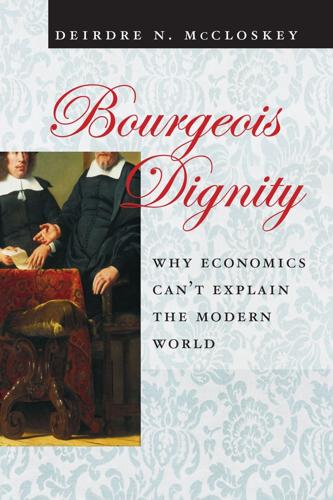
Bourgeois Dignity: Why Economics Can't Explain the Modern World
by
Deirdre N. McCloskey
Published 15 Nov 2011
Still today, as always, trade and betterment are threatened by the scorn of priest, knight, gentleman, poet, or thug, from Green to neo-Nazi. And now too they are threatened from within the bourgeoisie itself by a foolish pride—pride, the master sin against the Holy Spirit—that elevates trading prudence to the exclusion of other virtues. The threat appears as the crudely “neoliberal,” “greed-is-good” theory of behavior, encouraged by some economists and by all inside traders. The theory is the modern descendant of the Machiavellian moment of Il Principe and then the Hobbesian-Mandevillean-Benthamite notion that it’s enough to have prudence only—the restless stirring for gain, utility, self-interest.30 But profit maximization is not in itself an ethic.
…
For example: “What is prudence in the conduct of every private family can scarce be folly in that of a great kingdom.”8 But in his other published book one can find hundreds of pages in praise also of other virtues, especially temperance or, in the unpublished Lectures on Jurisprudence, justice. And even in the Wealth of Nations, I have noted, unless one is precommitted to seeing its implied hero as merely a confused precursor to Karl Marx’s Mister Money Bags or Paul Samuelson’s Max U, one can find a good deal of ethical judgment more grown-up than “prudence suffices” or “greed is good.”9 “Max U,” remember, is a little joke, referring to the Maximization of Utility under Constraints that Samuelson laid down as the monopolistic principle of modeling in economics in his modestly entitled PhD dissertation and then book, Foundations of Economic Analysis (1947). Max (such a man, I venture to say, would be more sensible if he became Maxine) is literally a sociopath, reducing every experience to his own pleasure.
…
Smith in the Theory did not believe, as his teacher Hutcheson did, that in achieving social peace and prosperity we can depend on natural benevolence—we would call it genetically hardwired cooperation (for which, by the way, in case you don’t believe the evidence of four millennia of poetry, drama, religion, novels, proverbs, folktales, philosophy, theology, and history, there is by now a good deal of recently gathered positivistic experimental and observational evidence). Nor did he believe, as many economists still understand him to do, in a fuzzy version of Mandeville’s hardwired opposite of cooperation, a macho competiveness, greed is good. Against inherited niceness or nastiness, as I have noted, Smith repeatedly emphasized in The Theory of Moral Sentiments, as he did also in The Wealth of Nations, that during their lives people change, shaped by society and, it may be, by their own impartial spectator. In the phrase appropriate to a time of apprenticeships, people were “brought up to a trade.”
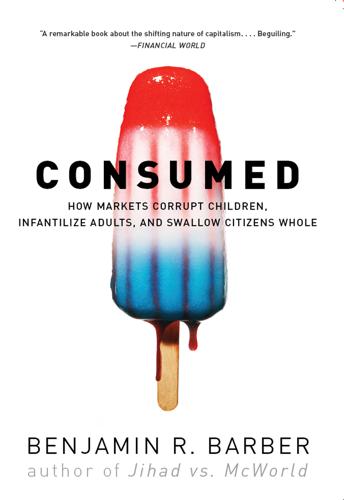
Consumed: How Markets Corrupt Children, Infantilize Adults, and Swallow Citizens Whole
by
Benjamin R. Barber
Published 1 Jan 2007
In Canada, the Vancouver Sun newspaper—Vancouver’s largest, most popular daily—published an op-ed on the ethics of shopping titled “Shop till you drop: It’s a moral imperative.”17 Nonetheless, Gilder did not realize that the capitalism he beatified had changed. He confounded late consumer capitalism and what he saw as its celebration of altruistic avarice (greed is good!) with early entrepreneurial capitalism and its celebration of altruistic asceticism (work is holy!). Gilder was singing hymns to saving and investing, while Christians were busy spending and consuming. He applauded the virtue of inventiveness and capital creation, while it was the virtue of product-less mergers and acquisitions and need-generating marketing and branding that were defining the new spirit of consumerism.
…
The new ethos wants us to believe it is good in itself. This postmodern consumer-capitalist gospel is precisely the one found in the proliferating “how-to” texts of today’s consumerist canon where being rich is defined by spending heartily, and conspicuous consumption is no longer a vice but a virtue. Jonathan Hoenig’s book Greed Is Good, whose title is borrowed from Stone’s film, is an example, carrying the whimsical but telling subtitle The Capitalist Pig Guide to Investing. Hoenig counsels investors to accept that while “greed has been much maligned in our culture…[i]n the game called life, the object is to make yourself happy.”
…
(the largest carpet manufacturer in the world which has committed to using only reusable or recycled materials), and Starbucks have all grasped the civic possibilities of marketing along with the marketing possibilities of charitable giving. Corporations understand that good citizenship pays, and that modifying their products and practices in order to attract customers who may otherwise avoid them or seek out rivals is not only a prudent civic practice but good business as well. Their motive may be greed, but that’s the point: greed is good in this domain, not because the greedy are posturing narcissists like Michael Douglas’s character in the movie of that name, but because greed can be made an engine of responsible social service, allowing producers to make a profit when they respond to socially responsible demands by consumers.

The Raging 2020s: Companies, Countries, People - and the Fight for Our Future
by
Alec Ross
Published 13 Sep 2021
If companies were turbocharged to maximize profits, it would jolt the whole country and the whole world into growth. To get there, all you had to do was prioritize profit. A pithier version of Friedman’s big idea soon swept through the culture, expressed by Gordon Gekko in Oliver Stone’s Wall Street: “Greed is good.” The effect of shareholder primacy was to drive a stark line between a company’s shareholders and its stakeholders, defined as every other party affected by its business and including its employees, its community, its country, its customers, and the environment. Under the new model, shareholder profits came first and foremost, and any significant investment in other stakeholders became a liability.
…
To put it bluntly: Richard Feloni, “The Economist Joseph Stiglitz Explains Why He Thinks the Late Milton Friedman’s Ideas Have Contributed to Rising Inequality in the US,” Business Insider, March 13, 2018, https://www.businessinsider.com/joseph-stiglitz-milton-friedman-capitalism-theories-2018-3. In an interview with the New York Times: “Greed Is Good. Except When It’s Bad,” New York Times, September 13, 2020, https://www.nytimes.com/2020/09/13/business/dealbook/milton-friedman-essay-anniversary.html. 181 members of the Business Roundtable: “Business Roundtable Redefines the Purpose of a Corporation to Promote ‘An Economy That Serves All Americans,’” Business Roundtable, August 19, 2019, https://www.businessroundtable.org/business-roundtable-redefines-the-purpose-of-a-corporation-to-promote-an-economy-that-serves-all-americans.
…
Larry Fink: Climate Crisis Will Reshape Finance,” New York Times, January 14, 2020, https://www.nytimes.com/2020/01/14/business/dealbook/larry-fink-blackrock-climate-change.html; Amy Harder, “JPMorgan Chase to Pull Support for Some Fossil Fuels,” Axios, February 24, 2020, https://www.axios.com/jp-morgan-fossil-fuels-support-4b755a24 -d57c-4d8b-8424-a401e994ec89.html. Hedge fund billionaire Daniel Loeb: “Greed Is Good. Except When It’s Bad,” https://www.nytimes.com/2020/09/13/business/dealbook/milton-friedman-essay-anniversary.html. in the midst of the 2020 COVID-19 pandemic: Carmen Reinicke, “Amazon Sees $83 billion in Market Cap Erased after Quarterly Profits Shrink,” Business Insider, May 1, 2020, https://markets.businessinsider.com/news/stocks/amazon-stock-price-erasing-billions-market-value-post-earnings-coronavirus-2020-5-1029155310.
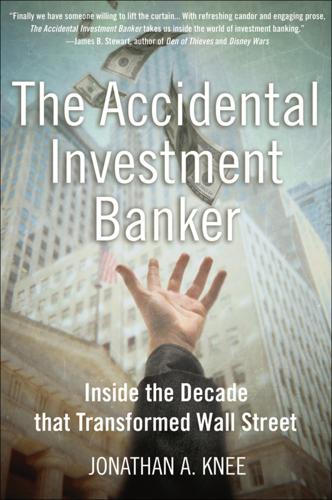
The Accidental Investment Banker: Inside the Decade That Transformed Wall Street
by
Jonathan A. Knee
Published 31 Jul 2006
Why should we be surprised that bankers fell all over each other on the way out of one set of doors and through the other? To be fair, some version of this explanation is by far the most popular not only among the general public, but also among bankers themselves. Yet there is something unsatisfactory about this theory—let’s call it the Greed is Good theory after the famous Michael Douglas line from Oliver Stone’s Wall Street. If the theory were true, it would suggest one could simply get bankers to stay by paying them more. And this is precisely what the major investment banks tried to do. They began gingerly with a variety of “quality-of-life” initiatives that tried to emulate the imagined work environment at Internet companies.
…
All Goldman Sachs employees received significant stock grants at the time of the IPO that would be forfeited if they left the firm within three years. The incremental compensation plans of other banks, no matter how generous, were no more than a fraction of the payoff that the Goldman IPO represented to those who stayed with the firm. If the Greed is Good theory were true, one would have expected dramatically lower personnel turnover at Goldman Sachs— even ignoring that Goldman has had lower historic turnover anyway. But Goldman experienced the same attrition rates as its peers. This happened despite the fact that Goldman had instituted one of the more generous incremental compensation plans (on top of the IPO stock distribution) to stem the exodus of bankers.
…
For if Goldman couldn’t hang on to its people by using the stick of taking back its IPO largesse, how could others ever afford a carrot big enough to do the job? What can explain the odd group dynamic that first drew these over-achievers to banking and then to the Internet? At the time, I groped for a theory less simplistic than Greed Is Good but more persuasive than, say, mass hysteria. Surprisingly, I stumbled onto a clue in the journey of personal self-discovery embarked on by Al Gore, who then was in the midst of his unsuccessful quest to succeed Bill Clinton as president of the United States. After his disastrous 1988 presidential run and his son’s near-fatal car crash, Al Gore had a midlife crisis.
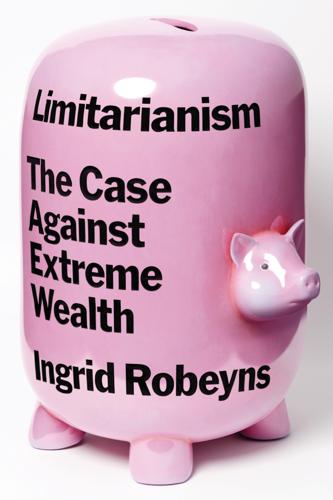
Limitarianism: The Case Against Extreme Wealth
by
Ingrid Robeyns
Published 16 Jan 2024
The idea of human nature embedded in neoliberalism tells us that material gain is what drives people, but why should this be the case? And even if it were (to some extent) the case, then we must not forget, either, that the degree to which people need to be rewarded in order to contribute can change with the zeitgeist. Neoliberal ideology, with its “greed is good” mantra, makes some people believe that they are stupid if they do not go after the highest possible wage, or the highest possible income. But why? Why should this be the case? If we get used to being contented with fair remuneration for work or entrepreneurship, and we divide up the benefits of what we produce together more equitably, then it will become rare that one encounters zero financial reward for additional effort.
…
The same can be said about the housing crisis, or the mental-health crisis, or the ongoing tragedy that billions of people live in poverty worldwide. The actions listed above will not magically solve all our problems. But they will help. In the end, the most important change is to abandon the mantras that “greed is good” and “the sky is the limit.” They are wreaking so much havoc. That we have come to believe and enact them is shameful and, as we have seen, destructive. Some readers might wonder what they should do next. In the many dozens of public talks I’ve given on limitarianism, there has often been someone in the audience who despairs, wondering how we are going to make all these urgent changes.
…
See equality inflation 28, 34 inheritance 7, 81–82, 121–5, 133, 134, 139, 160, 174, 191, 193, 201, 226–7 tax 8, 68, 82, 121–5, 191, 226–7 Inside Climate News 98 Institute of Economic Affairs 40 Intergovernmental Panel on Climate Change (IPCC) 97, 106 Internal Revenue Service (IRS) 62 International Consortium of Investigative Journalists (ICIJ) 63, 64, 180 International Labour Organization (ILO) 58 International Monetary Fund (IMF) 39 Jacobson, Mark 113 Jong, David de: Nazi Billionaires: The Dark History of Germany’s Wealthiest Dynasties 44 judiciary 52, 76, 94, 199, 219 Kerala, India 21 kerosene 102 Keynes, John Maynard 33 Kiribati 102, 106 kleptocracy 47–52, 70, 76 Koch, Charles and David 89–90 Koch Industries 90 labor Global South and 153, 154 human capital and 216 manual labor, demand for 32 market discrimination 125 platform economy and 210 rights 23, 57, 166 taxing 69, 226 unions see unions wages/pay inequalities see wages Lakner, Christoph 21 Lega 50–51 liberal democracies 73–4, 94, 141, 180, 219, 222 libertarianism xxvii, 55, 77, 90, 120, 169, 173 Liechtenstein 166 life expectancy 18 limitarianism basic income and see basic income class and see individual class name climate change and see climate change defined xiv democracy and see democracy direct cash transfers and see direct cash transfers dirty money and see dirty money economic systems and see individual system name equality and see equality ethical action and xvi ethical limit xix, 12, 15–6, 93, 117, 139, 182, 186 fiscal action and xvi, xvi future of 203–229 inheritance and see inheritance limitarian ethos xvi, 186 markets and see markets philanthropy and see philanthropy political limit xix, 15–6, 25, 116, 126, 161, 228 poverty and see poverty regulative ideal xiv, 214 riches line and see riches line tax and see tax structural action xv super-rich and see super-rich wages see wages literacy 18, 21 living wage 142, 160, 223 lobbying 56, 70, 84–5, 166, 167, 178, 203 Loblaw 58 London 9 homelessness in 143 living standards in 10 real-estate prices 13 refugees in 79 study into riches line in 11–2, 15, 41, 200 lower-middle class 5, 10, 25, 111 luck 14, 75, 82, 122, 129–130, 131, 139, 148, 155, 161, 174, 191, 200, 201, 212, 217 Lutheran Church 149 Machin, Dean 95 Madoff, Bernie 196–7 Malleson, Tom: Against Inequality 64, 162 Malm, Andreas 115–6 Malta 9, 78, 79, 80 Mangue, Teodoro Nguema Obiang 47–8 Marcos, Imelda 48–9 markets xii abolition of 208 big government and 169 climate change and 177 constraints on xix failures, uncorrected 134–5, 145 ideologies see individual ideology name non-market economy 213–4 regulation 209, 211, 213 rent-seeking and 128–9 as social institution 118–22 Marshall Islands 106 maternal mortality rates 18 Mathisen, Ruben 83 Mayer, Jane 88–9, 89–90 Mazzucato, Mariana Mission Economy 159 The Entrepreneurial State 137, 159 Mbappé, Kylian 126 media outlets, super-rich acquire 52, 86–9 meritocracy 141 Messi, Lionel 64 middle class climate change and 100, 108, 110, 111, 114–5, 143 definition of 10–11, 29 energy prices and 96 global inequalities and 93–4 income tax and 185–6 inequality and xv, xxv–xxvi, 2, 3 inheritance cap and 227–8 savings and 4 “self-made” super-rich and 5, 6 trickle-down effect and 38 wages and 189 wealth-defense industry and 70 wealth of 25, 45 win-win narrative and 21, 22 working class and 217–8 migration 23, 79, 94, 127, 150, 155 Milanovic, Branko 21 military infrastructure 172 Mill, John Stuart 146 Millionaires for Humanity 6 miners strike, Britain (1984) 33 Minimum Income Standard 10 minimum wage xiv, 160, 174, 176, 211, 224 mixed economy 33–4, 209, 210–211 Monbiot, George 98, 232; Regenesis 108 “moonshot” strategies 114, 159 morality 106, 148 climate change and 103–4, 106, 110, 115–6 democracy and 72, 75, 81 dirty money and see dirty money ethical limit see ethical limit full determinism and 131 inheritance and 122, 125, 134, 226 philanthropy and 165–6, 168, 173, 176–7, 181, 184, 185, 186 riches line and 15 wealth inequality and xiii, xiv, xvii, xxiv, xxvi, 15, 16, 24, 31, 34, 36, 118, 120, 122, 125, 131, 134, 135–6, 138, 148, 161, 187, 188, 193, 194, 196, 197–8, 199, 212, 223–4 mortgage 11, 37, 61, 121, 227 Mossack Fonseca 63–4 Murdoch, Rupert 86–9 Murphy, Liam 120 Musk, Elon xi, 9, 181, 199, 212–3 Nagel, Thomas 120 narcissism 174 national parks 210–11 national public service 218–9 natural lottery 130 Nazi atrocities 43–5 Nembwaya, Frida 151 neoclassical economic theory 111–2 neoliberalism xxv, 38, 38–9, 54–5, 187 atomized individuals and 144–5, 200 climate change and 114 consumer and 191, 202 democracy and 90, 94 deserving poor and 151 dismantling 215–8 distrust of government and 172–3 entrepreneurs and 159 “greed is good” mantra 162 philanthropy and 165–6, 171, 172, 179–180 poverty in affluent nations and 156 progressive parties and 190 “self-made” super rich and 143 spread of 34, 191 tax rates and 146, 221 welfare state and 171 network effects 129 News of the World 87 New York Times 91, 198 Nielsen, Lasse xxii non-financial incentives 162–3 Norton, Michael 204 Obama, Barack xx, 88, 90 Obermayer, Bastian 63–4 Obiang, Theodore 47, 47 obliviousness 174–5 Occupy movement xii, 9 oil 47, 83, 96, 98, 103, 211 oligarchy 9, 10, 73, 78, 79 O’Neill, Jessie: The Golden Ghetto 194–5 opioid crisis 53–4 Oportunidades (Opportunities) 152 Optimist, The 18 Orbán, Victor 73 Organization of Economic Cooperation and Development (OECD) 36, 155, 225–6 Ortega, Amancio 135–6 Osnos, Evan 89 Otele, Olivette 46–7 Otjivero, Namibia 149–52, 178, 226–7 Our World in Data 18–19 Oxfam report on inequality 3, 17 OxyContin 53–4 Page, Benjamin 83 Page, Larry 137 Panama Papers 63–4, 180 Paris Climate Agreement (2015) 104 Patagonia xxiii, 180 Patriotic Millionaires 6, 12, 69, 169, 172, 188 Payne, Erica 12; Tax the Rich!
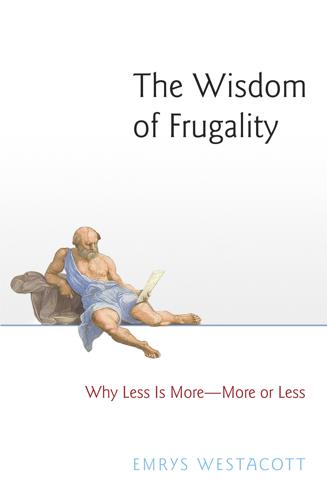
The Wisdom of Frugality: Why Less Is More - More or Less
by
Emrys Westacott
Published 14 Apr 2016
Even though Paul McCartney’s conventional platitude carried a whiff of irony, especially given his experience of sudden fame and fortune, while McCoy’s song goes on to imagine ways in which he will use his wealth to benefit others, the contrast here does seem to suggest a shift in cultural attitudes. Even so, when in the 1987 film Wall Street the real estate speculator and corporate raider Gordon Gecko declares that “greed is good,” we the audience understand by convention that the man who says this is bad; and we are duly satisfied when, at the end of the film, we see the bad man who says that greed is good carted off to prison. It seems that our culture is still torn between accepting acquisitiveness as a necessary condition of economic growth and denouncing it as an undesirable character trait that bespeaks false values and encourages unethical conduct.
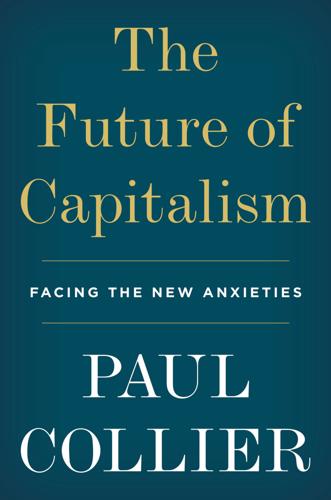
The Future of Capitalism: Facing the New Anxieties
by
Paul Collier
Published 4 Dec 2018
This chapter explores how our morals are linked to our emotions, how they evolve, and how things can go wrong.1 WANTS AND ‘OUGHTS’ The glib supporters of capitalism who argue that the end justifies the means invoke Adam Smith’s famous proposition in The Wealth of Nations that the pursuit of self-interest leads to the common good. ‘Greed is good’ became the intellectual underpinning for the zeal of the Reagan–Thatcher revolution. Smith’s proposition is a valuable corrective to the naïve notion that an action is good only if well-motivated. But modern economics, which The Wealth of Nations launched in 1776, is built on a character who is utterly despicable.
…
ISIS used narratives strategically to take societies back to the twelfth century. Our leaders could use them to better purpose. SOFTWIRED OBLIGATIONS We started with the moral deficit facing modern capitalism: a society can do without morality because self-interest will get us to the nirvana of mass prosperity. ‘Greed is good’ because the stronger the appetite, the harder will people work, and so the more prosperous we will all become. We have come a long way from that proposition. We are social beings, neither economic man, nor altruistic saints. We crave esteem and belonging, and these underpin our moral values. Around the world we hold six such values in common, none of which is generated by reason.
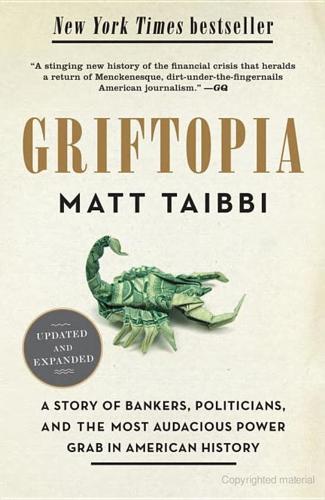
Griftopia: Bubble Machines, Vampire Squids, and the Long Con That Is Breaking America
by
Matt Taibbi
Published 15 Feb 2010
The other is that millions of tenuously middle-class voters are conned into pushing Wall Street’s own twisted greed ethos as though it were their own. The Tea Party, with its weirdly binary view of society as being split up cleanly into competing groups of producers and parasites—that’s just a cultural echo of the insane greed-is-good belief system on Wall Street that’s provided the foundation/excuse for a generation of brilliantly complex thievery. Those beliefs have trickled down to the ex-middle-class suckers struggling to stay on top of their mortgages and their credit card bills, and the real joke is that these voters listen to CNBC and Fox and they genuinely believe they’re the producers in this binary narrative.
…
Such a being is a metaphysical monstrosity, struggling to oppose, negate and contradict the fact of his own existence, running blindly amuck on a trail of destruction, capable of nothing but pain. This is pure social Darwinism: self-interest is moral, interference (particularly governmental interference) with self-interest is evil, a fancy version of the Gordon Gekko pabulum that “greed is good.” When you dig deeper into Rand’s philosophy, you keep coming up with more of the same. Rand’s belief system is typically broken down into four parts: metaphysics (objective reality), epistemology (reason), ethics (self-interest), and politics (capitalism). The first two parts are basically pure bullshit and fluff.

WTF?: What's the Future and Why It's Up to Us
by
Tim O'Reilly
Published 9 Oct 2017
After World War I, the United States beggared its returning veterans. After World War II, we sent them to college. Wartime technologies such as digital computing were put into the public domain so that they could be transformed into the stuff of the future. The rich taxed themselves to finance the public good. In the 1980s, though, the idea that “greed is good” took hold in the United States and we turned away from prosperity. We accepted the idea that what was good for financial markets was good for everyone and structured our economy to drive stock prices ever higher, convincing ourselves that “the market” of stocks, bonds, and derivatives was the same as Adam Smith’s market of real goods and services exchanged by ordinary people.
…
But the key lesson is one we have seen again and again. The design of a system determines its outcomes. The robots did not force a human-hostile future upon us; we chose it ourselves. The 1980s were the years of “corporate raiders” celebrated by Michael Douglas’s character, Gordon Gekko, in the 1987 movie Wall Street, who so memorably said, “Greed is good.” The theory was that by discovering and rooting out bad managers and finding efficiencies in underperforming businesses, these raiders were actually improving the operation of the capitalist system. It is certainly true that in some cases they played that role. But by elevating the single fitness function of increasing share price above all else, they hollowed out our overall economy.
…
See also regulations government as a platform, 133–35, 149–50 Code for America, 138–44, 147, 148–49, 187, 222 and elites understanding technology, 146 federal government, 147 Gov 2.0 Summit and Expo, 128–31 healthcare.gov crisis, 118–19, 146 local governments, 138–42 need for reinvention of applications, 143 NSF Digital Library Program, 132 R&D grants, 132 requirements for, 135–37 “Government Data and the Invisible Hand” (Robinson, et. al), 130 Government Digital Service, United Kingdom (UK GDS), 144–45, 168–69 GPL (GNU Public License), 25 GPS, 83–84, 131, 176–77 Gray, Mary, 166 “greed is good” choice in 1980s, xxv Green, Hank, 289, 316 Green, Logan, 77, 183 Green Bay Packers, 244 Green Mars (Robinson), 96 Griffith, Saul, 66, 326–27, 363–64 Grossman, Nick, 189 Guardian, 214 Guarino, Dave, 141–43 Hagel, John, III, 341 Hagiu, Andrei, 196 Ha-Joon Chang, 134 Haldane, Andrew, 175 Halevy, Alon, 155–56 Hammerbacher, Jeff, 156, 169 Hanauer, Nick, 196, 250, 257, 264–65, 267, 268, 300, 368–69 Hanrahan, Jim, 43 Haque, Umair, 248–49 “Hardware, Software, and Infoware” (O’Reilly), 9–11, 13–14 “Harnessing Collective Intelligence” vector, 37–40 Harvard Business Review, 24, 156, 196, 204 Hassabis, Demis, 167, 234 healthcare.gov, 118–19, 146 Hedlund, Mark, 287 Herbert, Frank, 76 Hewlett-Packard (HP), 79 Hickey, Dave, 313 Hidden Figures (film), 301 Hill, Steven, 184, 196 Hillaker, Harry, 209 Hillis, Danny, 44 HITs (Human Intelligence Tasks), 166 Hoffman, Reid, 36 Hoffman’s Law, 36–37 Honor, 332–33 Hooke’s Law, 327 Hotwired (online magazine), 81 household debt, xxi Howard, Jeremy, 168 Hsiang, Mina, 148 Huber, Jeff, 353–54 Hugo, Victor, 355 Humans of New York (Stanton), 370–71 Human Spectrogram, 222 Huxley, Thomas Henry, 44 Hwang, Tim, 332 hybrid artificial intelligence, 234–36 IBM, 11–12, 136 idea meritocracy, 223 Ignorance (Firestein), 340 Immelt, Jeff, 303 independent contractors, 190–92 indie.vc model, 286 industrial revolution, xxiv Inequality for All (documentary film), 265 inflation, 239 information, 66–67, 89.

Money: Vintage Minis
by
Yuval Noah Harari
Published 5 Apr 2018
Yet Smith’s claim that the selfish human urge to increase private profits is the basis for collective wealth is one of the most revolutionary ideas in human history – revolutionary not just from an economic perspective, but even more so from a moral and political perspective. What Smith says is, in fact, that greed is good, and that by becoming richer I benefit everybody, not just myself. Egoism is altruism. Smith taught people to think about the economy as a ‘win-win situation’, in which my profits are also your profits. Not only can we both enjoy a bigger slice of pie at the same time, but the increase in your slice depends upon the increase in my slice.
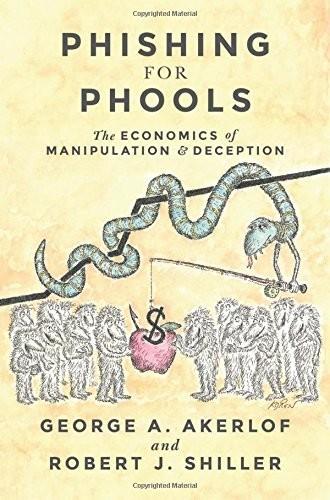
Phishing for Phools: The Economics of Manipulation and Deception
by
George A. Akerlof
,
Robert J. Shiller
and
Stanley B Resor Professor Of Economics Robert J Shiller
Published 21 Sep 2015
This opposite side of the coin has been argued in Andrei Shleifer and Lawrence H. Summers, “Breach of Trust in Hostile Takeovers,” in Corporate Takeovers: Causes and Consequences, ed. Alan J. Auerbach (Chicago: University of Chicago Press, 1988), pp. 33–68. 30. Brian Hindo and Moira Herbst, “Personal Best Timeline, 1986: ‘Greed Is Good,’” BusinessWeek, http://www.bloomberg.com/ss/06/08/personalbest_timeline/source/7.htm. 31. Bruck, The Predators’ Ball, p. 320. 32. Bruck, The Predators’ Ball. 33. FDIC v. Milken, pp. 70–71. 34. Alison Leigh Cowan, “F.D.I.C. Backs Deal by Milken,” New York Times, March 10, 1992. 35. See Thomas Piketty, Capital in the Twenty-First Century (Cambridge, MA: Harvard University Press, 2014), p. 291, fig. 8.5, and p. 292, fig. 8.6. 36.
…
“The 15 Ronald Reagan Quotes Every Business Leader Must Know.” Accessed January 16, 2015. http://www.entrepreneur.com/article/234547. Hickman, W. Braddock. Corporate Bond Quality and Investor Experience. Princeton: National Bureau of Economic Research and Princeton University Press, 1958. Hindo, Brian, and Moira Herbst. “Personal Best Timeline, 1986: ‘Greed Is Good.’” BusinessWeek. http://www.bloomberg.com/ss/06/08/personalbest_timeline/source/7.htm. Hirschman, Elizabeth C. “Differences in Consumer Purchase Behavior by Credit Card Payment System.” Journal of Consumer Research 6, no. 1 (June 1979): 58–66. “History in Review: What Really Happened to the Shah of Iran.”
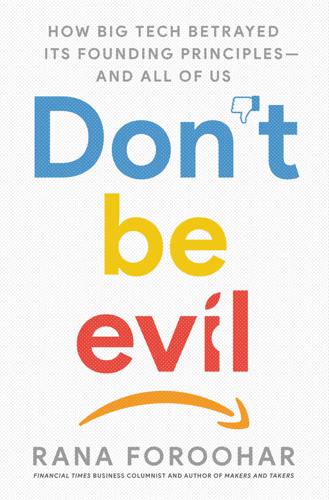
Don't Be Evil: How Big Tech Betrayed Its Founding Principles--And All of US
by
Rana Foroohar
Published 5 Nov 2019
Silicon Valley has always had a core Ayn Rand libertarianism underneath its hippie patina: It justifies their sense of freedom from any costly social responsibility for the downsides of their products and services. As Jonathan Taplin, Jaron Lanier, and other Silicon Valley critics have written, the tech titans may tend to vote left, but the strong libertarian bias in digital culture cuts right. Theirs is an eighties-style “Greed is good” ethos overlaid with the contempt of a youthful generation of CEOs who’ve never seen government do anything much more ambitious than cut taxes. All of this has resulted in a self-interested and shortsighted “disrupt everything” mentality. It’s much easier, of course, to break things than to fix them.
…
Neoliberalism on Steroids As powerful as the network effect is, to understand the seemingly unstoppable growth of the platform companies like Google or Facebook, you also have to look at how much the politics of Silicon Valley changed between the era of hippie idealism represented by Steve Jobs, and the libertarian epoch of Peter Thiel and his ilk. “It was a titanic shift,” says Roger McNamee, who has worked in tech for more than forty years. “While the rank and file in Silicon Valley is liberal, the top people at the top firms tend to believe that greed is good.” How could they not? Ever since the 1980s, most of American business has been subscribing to the trickle-down “markets know best” doctrine popularized by the so-called Chicago School of economics. The Internet platforms in particular have benefited enormously from the Chicago School’s antitrust philosophy, which maintains that as long as products are cheap or free, there’s no monopoly issue.
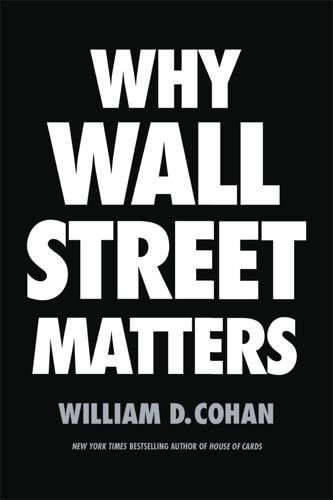
Why Wall Street Matters
by
William D. Cohan
Published 27 Feb 2017
The modern-day equivalent of this sentiment can be found in the musings of Bernie Sanders, the U.S. senator from Vermont and former Democratic presidential candidate, whose stump speeches during the 2016 presidential campaign condemned Wall Street relentlessly. “Greed, fraud, dishonesty and arrogance, these are the words that best describe the reality of Wall Street today,” he said in January 2016. And then he paid homage to one of the most recognizable cultural touchstones about modern Wall Street when he referred to the famous “Greed is good” scene in Wall Street, the 1987 Oliver Stone film, where Gordon Gekko, played with oleaginous glee by Michael Douglas, lectures Bud Fox, his young and aspiring apprentice (played by Charlie Sheen). “So, to those on Wall Street who may be listening today, let me be very clear,” Senator Sanders continued.
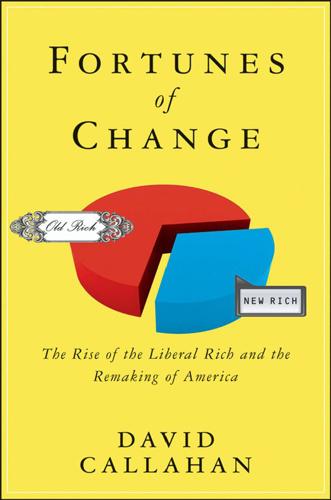
Fortunes of Change: The Rise of the Liberal Rich and the Remaking of America
by
David Callahan
Published 9 Aug 2010
Many companies also adopted a more ruthless approach to labor unions, using illegal tactics to thwart organizing efforts. And the compensation of CEOs and other executives began its skyward climb. The next chapter of the story is well known. Corporate values shifted sharply in the 1980s, the “greed is good” era in which vast pay inequities and frequent downsizing became normalized. Conspicuous consumption by corporate chieftains and Wall Street big shots—frowned on in the early postwar decades—returned on a grand and gaudy scale. The new business stars of the moment were brash figures unembarrassed by their mean streaks, such as Donald Trump and Carl Icahn.
…
Although Plato envisioned the Guardians as eschewing all material desires and living at a remove from worldly concerns, the modern version of his ideal has looked a little different: first, you make a boatload of money or are born to it, and then—keeping your multiple homes and perhaps your private jet—you turn to doing some good in the world. If oligarchy is government by the rich, for the rich, the contemporary Platonic ideal is about something else: rule by the rich on behalf of the common good, as they define it. This new noblesse oblige is spreading fast, and although it is a big step forward from the “greed is good” ethos, it is still deeply troubling. There are books about American life that describe what is happening, and books that suggest what should happen. This has mainly been the former kind of book. Obviously, however, the trends described so far have weighty implications for those trying to change the direction of public policy and politics.
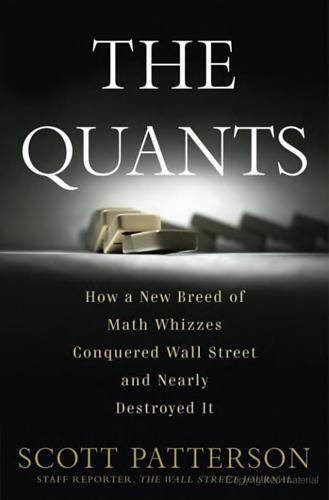
The Quants
by
Scott Patterson
Published 2 Feb 2010
The mood around the country turned decidedly anti–Wall Street as the junk bond scandals hit the front pages of newspapers. An October 1987 Newsweek cover queried, “Is the Party Over? A Jolt for Wall Street’s Whiz Kids.” In December 1987, audiences in movie theaters listened to Gordon Gekko, the slimy takeover artist played by Michael Douglas, proclaim the mantra for the decade in Oliver Stone’s Wall Street: “Greed is good.” A series of popular books reflecting the anti–Wall Street sentiment hit the presses: Bonfire of the Vanities by Tom Wolfe, Barbarians at the Gate by Wall Street Journal reporters Bryan Burrough and John Helyar, The Predators’ Ball by Connie Bruck, Liar’s Poker by Michael Lewis. The quants were licking their wounds.
…
At the time, the quants were known as rocket scientists, since many came from research hotbeds such as Bell Labs, where cell phones were invented, or Los Alamos National Laboratory, birthplace of the atomic bomb. Wall Street’s gut traders eventually proved to be no match for such explosive brainpower. Michael Lewis’s Wall Street classic, Liar’s Poker, exemplified and exposed the old-school Big Swinging Dick trader of the 1980s, the age of Gordon Gekko’s “greed is good.” Lewis Ranieri, the mortgage-bond trader made famous in the book, made huge bets based on his burger-fueled gut. Michael Milken of Drexel Burhman for a time ruled the Street, financing ballsy leveraged buyouts with billions in junk bonds. Nothing could be more different from the cerebral, computerized universe of the quants.
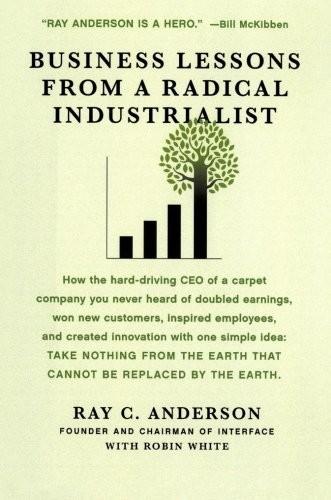
Business Lessons From a Radical Industrialist
by
Ray C. Anderson
Published 28 Mar 2011
This credo is at the heart of the world view that I’ve already written about—the fundamentally flawed paradigm, the mind-set that underlies the industrial system—and I suggest that that same mind-set also underlies the global financial system. I further suggest that Gordon Gekko’s fictional proclamation in the film Wall Street, “Greed is good,” is as widely accepted as Friedman’s credo, one hand-in-glove with the other, throughout the high-flying financial world. That’s a real double whammy! So, with trillions of dollars seeking instant gratification in short-term profits, with the financial industry coming up with ever-more esoteric and risky ways of satisfying that demand, with a ratings industry turning a blind eye to risk and stamping triple-A on too many pieces of paper (because if one agency didn’t, another would), something had to give, and it did.
…
See global climate change global-warming effect, net zero glue God’s currency Goethe Gonen, Ron Google Gore, Al An Inconvenient Truth Gorman, Mary government failure of, to solve environmental problems mandates from power of, to effect environmental change Grant, Ulysses S. Great Dane Trailers “greed is good” Green, John C. greenhouse gas (GHG) emissions effect on global warming effect on other planets (such as Venus) measuring of reduction of volume of green investors Greenlist green power, generation of, on-site green products, can’t be made from brown companies Greenspan, Alan greenwash Gretzky, Wayne grid, “off the” grid parity Grosclose, Frank gross domestic product, distortions of Gustashaw, Dave habitat Habitat for Humanity Haft, David Hansen, James Hart, Gary Hart, Stuart Hartzfeld, Jim Hawken, Paul Blessed Unrest The Ecology of Commerce Hawken, Paul, Amory Lovins, and L.
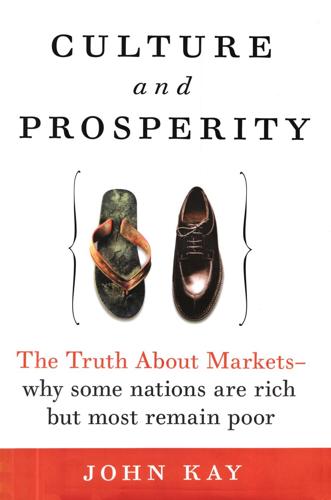
Culture and Prosperity: The Truth About Markets - Why Some Nations Are Rich but Most Remain Poor
by
John Kay
Published 24 May 2004
John Gutfreund, chairman of Salomon Brothers, one of the most aggressive investment banks of the 1980s, said successful traders must wake up each morning "ready to bite the ass off a bear." 8 Lester Thurow, economist and former dean of MIT's Sloan School of Management, offers intellectual support for this materialist perspective "Wealth has always been important in the personal pecking order, but it has become, increasingly, the only dimension by which personal worth is measured. It is the only game to play if you want to prove your mettle. It is the big leagues. If you do not play there, by definition you are second rate." 9 In the most extreme versions of the American business model, it is a mistake to deplore materialism and regard selfishness as a vice. Greed is good: nice guys finish last. The rambling but strident philosophy of Ayn Rand, Alan Greenspan's former mentor, proclaims the virtues of selfishness under the title objectivism. 10 The logical conclusion of extreme individualism is that concern for others is an emotion that can properly be called on only to the extent that we feel it spontaneously.
…
Adaptive behavior is determined by social and business values we impose on each other-the phenomenon of contagious reputation (chapter 19) is a good example-and the prevailing values of a market economy are key to its success. This is an important part of the explanation of why Norway and Switzerland are rich states and Kenya and Indonesia are not. The maxim that greed is good has set back the cause of economic development in the East, undermined the legitimacy and performance of the market economies of the West. There is no substantive difference between the pyramid schemes that crippled the Albanian economy in the mid-1990s and the stock market bubble of 1999-2000.
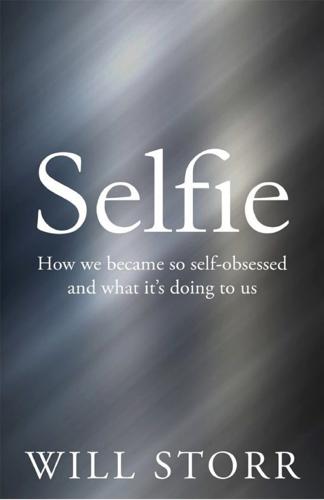
Selfie: How We Became So Self-Obsessed and What It's Doing to Us
by
Will Storr
Published 14 Jun 2017
It was the creation of a new form of human. ‘Economics are the method,’ said Thatcher, ‘but the object is to change the soul.’ And about that she was right. The most reliable way to change masses of selves, of course, is by changing the ways by which they have to get along and get ahead. The gamification of society triggered the ‘Greed is Good’ era, which represented a staggering transformation from the self of the anti-materialistic, communalistic hippies that had grown out of the mid-century’s more collective economy. This new and intensified form of competitive individualism meant less support from employers and the state, which, in turn, meant more and more pressure placed upon the individual.
…
And the new president endorsed like-minded friends, nominating a secretary of state, a secretary of labor and a director of the CIA who were all avowed fans of Rand and her ideas. Trump was, in many ways, a definitive creature of the neoliberal, self-esteem, celebrity era. A sumptuously narcissistic self-publicist, he’d initially become famous during the ‘Greed is Good’ 1980s only for his fame to become supercharged when he starred in the immaculately neoliberal reality show The Apprentice, which turned business into a ferociously competitive game in which losers suffered the public humiliation of a boardroom beat-up and his catchphrase, ‘You’re fired!’ But while his television profile was an important component of his rise to the heights of power, any true understanding of it would be incomplete without an account of one of his most effective tools: the echo chamber and sounding board of social media.
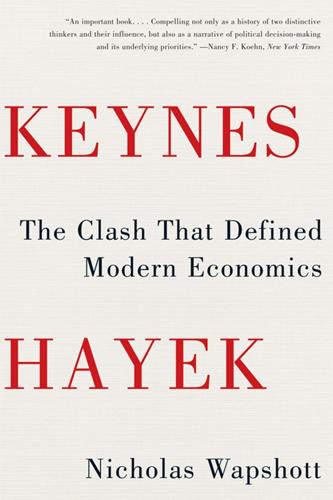
Keynes Hayek: The Clash That Defined Modern Economics
by
Nicholas Wapshott
Published 10 Oct 2011
Private enterprise replaced communal action as the preferred way to change society. The free-loving flower children of the 1960s’ “Love Generation” had given way to the self-centered “Me Generation” of the ’80s and ’90s. Bob Dylan’s call to action “The Times They Are a-Changin’” had been superceded by Gordon Gekko’s mantra “Greed Is Good.”21 The national battle for civil rights for minorities was replaced by a demand for smaller government, states’ rights, and more individual rights. By the early 1990s, Taylor’s rule, showing the trade-off between interest rates and the rate of inflation, named after the Stanford economist John Taylor,22 came to replace the Phillips curve, the trade-off between employment and inflation, as the equation of choice for those running the economy.
…
Bush’s Council of Economic Advisers (2005–6). 16 Ben Bernanke, remarks at “A Conference to Honor Milton Friedman,” University of Chicago, Chicago, November 8, 2002. 17 Michael Kinsley (1951– ), American political journalist. 18 Michael Kinsley, “Greenspan Shrugged,” The New York Times, October 14, 2007. 19 Greenspan, Age of Turbulence, p. 68. 20 George H. W. Bush (1924– ), ambassador to the UN, director of the CIA, and 41st president of the United States (1989–93). 21 The “Greed Is Good” speech by Gordon Gekko, the hero of Oliver Stone’s 1987 movie Wall Street, was based on a commencement address at the University of California, 1986, by the convicted inside-dealing stock trader Ivan Boesky, who said, “I think greed is healthy. You can be greedy and still feel good about yourself.” 22 John Brian Taylor (1946– ), American economist and Robert Raymond Professor of Economics at Stanford University. 23 George H.
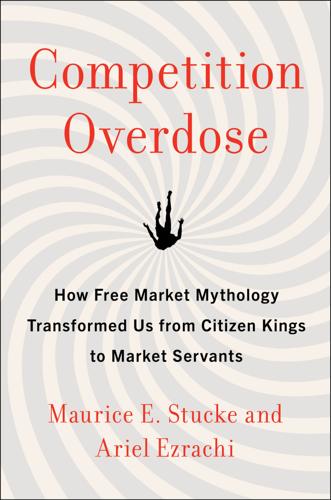
Competition Overdose: How Free Market Mythology Transformed Us From Citizen Kings to Market Servants
by
Maurice E. Stucke
and
Ariel Ezrachi
Published 14 May 2020
The competition ideologues have made it seem as though we must choose between competition and communism, or, as the choice is ever more frequently being described today, between competition and socialism. But the concept of competition they’ve been peddling for the past forty years—one drained of any ethical or moral content—isn’t the only or even the best form of competition for purposes of creating a healthy, prosperous, and just society. Indeed, as we’ll see, it is often the worst. Greed Is Good. Greed Is Right. Greed Works. President Ronald Reagan told the nation in his first inaugural address, “government is not the solution to our problem; government is the problem.” Competition and markets were his answer, and the concept of competition he was espousing was the narrow one espoused by Milton Friedman and his cohorts at the University of Chicago.
…
Will countries with greedier citizens deliver greater prosperity? And should we, as a society, elevate greed and use it to define ourselves? In answer to all of the above: Absolutely not. Competition, Collaboration, and Fairness Can Coexist While many people, not just the Chicago School jurists, quote Adam Smith to justify their belief that “greed is good,” far fewer consider the Scottish economist’s other important book, The Theory of Moral Sentiments. In this book, Smith praised the virtue of prudence—“The care of the health, the fortune, and the rank and reputation of the individual”—but only when it “is combined with many greater and more splendid virtues—valour, extensive and strong benevolence, a sacred regard for the rules of justice.”
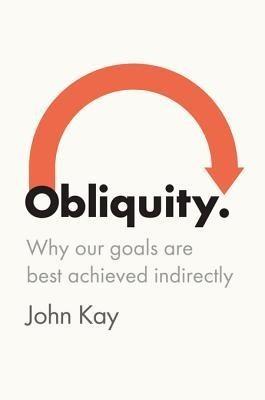
Obliquity: Why Our Goals Are Best Achieved Indirectly
by
John Kay
Published 30 Apr 2010
Dunlap was spared possible civil and criminal suits only after he agreed to pay penalties and restitution of fifteen million dollars.10 The history of the last two decades is littered with fallen idols who, like Dunlap, stridently asserted the primacy of wealth. Gordon Gekko, the antihero of Oliver Stone’s 1987 film Wall Street, famously proclaimed: “Greed is good.” Gekko was partly based on Ivan Boesky, a notorious corporate raider of the 1980s, who was reported as telling a class at Columbia: “I want you to know that I think greed is healthy. You can be greedy and still feel good about yourself.”11 Soon after, Boesky went to prison, convicted of insider trading.
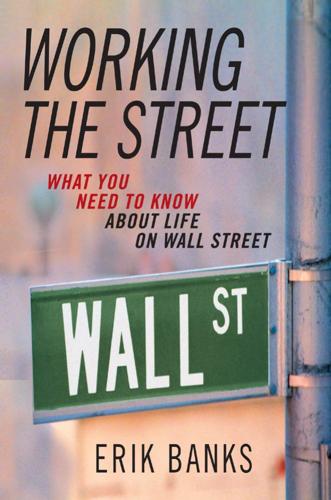
Working the Street: What You Need to Know About Life on Wall Street
by
Erik Banks
Published 7 Feb 2004
Have you ever watched the evening business news and seen all of those people in yellow jackets, packed shoulder-to-shoulder on the floor of some exchange, screaming and waving at each other, faces red and purple—looking either absolutely elated or wildly panicked? Do you remember the movie Wall Street—all the money changing hands, the “greed is good” speech, the little companies buying the big ones, the 4 | W o rk i n g t h e S t re e t “inside information” circulating between good guys and bad guys, the eight-panel cutaway shot of the trading floors with high-powered executives earning and losing millions? For many of you, these TV and movie scenes represent Wall Street—and they make it seem so complicated and unintelligible.
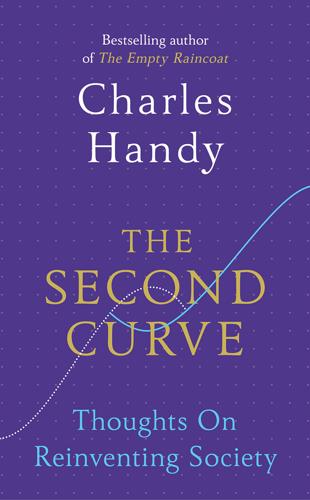
The Second Curve: Thoughts on Reinventing Society
by
Charles Handy
Published 12 Mar 2015
No, Greenspan was not naive. Along with most of the business world and government, he believed that markets self-corrected. We could see it at work in the street markets. We were taught it at business school. It was that clever device by which selfishness became justified, even if the maxim of ‘greed is good’ was going a bit too far. Adam Smith, the godfather of economics, said it, so it had become a hallowed truth, almost the foundation stone of capitalism. So how could it all have gone so wrong? Let us be clear from the start: Adam Smith did not say that the ‘invisible hand’ would allow self-interest to work for the good of all.
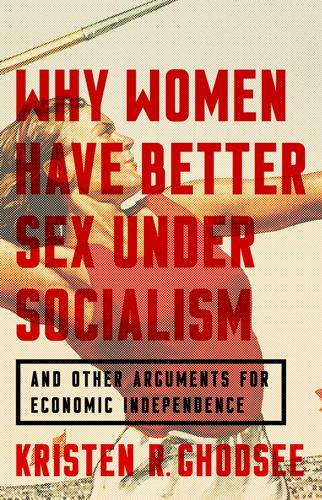
Why Women Have Better Sex Under Socialism: And Other Arguments for Economic Independence
by
Kristen R. Ghodsee
Published 20 Nov 2018
Back then, I was already a feminist with concerns about economic inequality, while Jake, true to the spirit of the 1980s, believed that whoever dies with the most toys wins. We spent hours debating the pros and cons of capitalism, and the ways that Thatcherism and Reaganomics sucked or didn’t suck. Jake embraced the Gordon Gekko zeitgeist of the age: “Greed is good.” I wasn’t buying it. But back in those days when domestic politics weren’t so polarized, we managed to maintain our friendship throughout our college years. In the 1990s, while I was off teaching English and reading Karl Polanyi in Japan, Jake was hustling his way up the corporate ladder at a tech start-up.
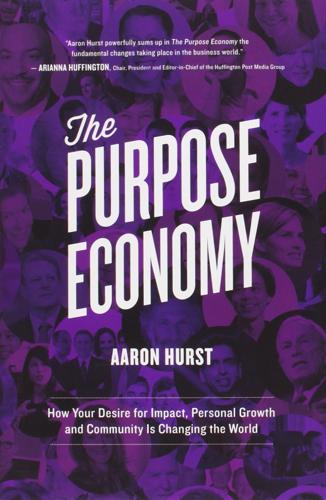
The Purpose Economy: How Your Desire for Impact, Personal Growth and Community Is Changing the World
by
Aaron Hurst
Published 31 Aug 2013
As they came of age, the environmental movement was going mainstream; pioneering social entrepreneurs were popularizing the idea of “doing well by doing good,” with forerunners like Paul Hawken of Smith & Hawken, Ben & Jerry’s, and Anita Roddick of the Body Shop popularizing a new ethic of corporate social responsibility. Meanwhile, celebrities like Matt Damon, Angelina Jolie, and George Clooney were popularizing a new ethic of individual engagement, making it cool to be socially engaged. The excesses of Wall Street, the dot-com boom and bust, and the mentality that “greed is good” began to change the scope of the American Dream for many Millennials coming of age. Even as they saw their parents working harder and spending less time at home in order to afford the big house, three cars, and all the accoutrements of success, they were mostly turned off by these status symbols and began to challenge existing paradigms of success.
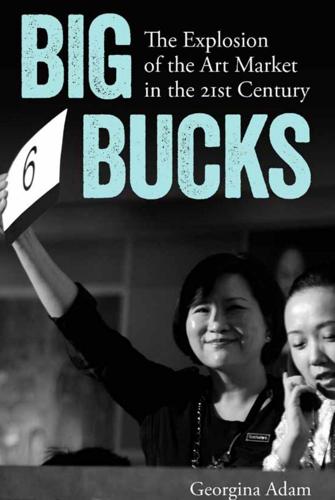
Big Bucks: The Explosion of the Art Market in the 21st Century
by
Georgina Adam
Published 14 Jun 2014
That has continued to develop, ultimately leading to an identification of the artist with a gallery that has become today’s ‘branding’. One significant element that changed the contemporary art world, and which set the stage for what would happen in the twenty-first century, was 1980s prosperity and Wall Street. This boom period of ‘greed is good’, the catchphrase from the 1987 film Wall Street, washed into the art market as into other sectors. This was a period of outrageous speculation, art funds and highly leveraged buying by the Japanese, particularly between 1987 and 1990. While the focus was still mainly on Impressionist painters such as Van Gogh and Renoir, the heightened interest in art and the huge prices it was achieving also impacted on the contemporary market.
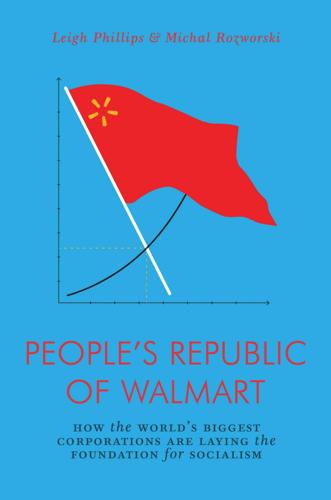
The People's Republic of Walmart: How the World's Biggest Corporations Are Laying the Foundation for Socialism
by
Leigh Phillips
and
Michal Rozworski
Published 5 Mar 2019
But the consensus among the business press and dozens of very bitter former executives is that the overriding cause of Sears’s malaise is the disastrous decision by the company’s chairman and CEO, Edward Lampert, to disaggregate the company’s different divisions into competing units: to create an internal market. From a capitalist perspective, the move appears to make sense. As business leaders never tire of telling us, the free market is the fount of all wealth in modern society. Competition between private companies is the primary driver of innovation, productivity and growth. Greed is good, per Gordon Gekko’s oft-quoted imperative from Wall Street. So one can be excused for wondering why it is, if the market is indeed as powerfully efficient and productive as they say, that all companies did not long ago adopt the market as an internal model. Lampert, libertarian and fan of the laissez-faire egotism of Russian American novelist Ayn Rand, had made his way from working in warehouses as a teenager, via a spell with Goldman Sachs, to managing a $15 billion hedge fund by the age of 41.
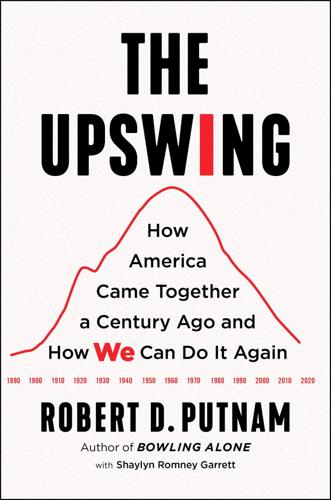
The Upswing: How America Came Together a Century Ago and How We Can Do It Again
by
Robert D. Putnam
Published 12 Oct 2020
Atlas Shrugged is sometimes said to be the most widely read book of the twentieth century, trailing only the Bible.54 Rand had a genius for quotable, controversial aphorisms: “Nobody has ever given a reason why man should be his brother’s keeper” and “Altruism is incompatible with freedom, with capitalism and with individual rights.”55 Gordon Gekko’s “Greed is good” from the 1987 film Wall Street simply echoed Rand. Rand’s libertarianism was so accessible that it became virtually biblical to successive generations of conservative political leaders—from Margaret Thatcher and Ronald Reagan to Alan Greenspan and former speaker of the House of Representatives Paul Ryan.
…
Scott, 174 Follett, Mary Parker, 111 “foot off the gas” phenomenon: in education, 30, 32, 48, 210 gender and, 275, 281–82, 296 nature of, 15, 32, 203, 205, 240–42, 243, 281–82, 296, 411n15 in voting rights, 216–17 Ford, Gerald, 84 Fountainhead, The (Rand), 186–87 4-H, 116, 118, 121 Fox News, 101 franchises: civic organizations, 117–19, 322–23 corporate, 117 Franklin, Vincent P., 207 fraternal groups, 112, 114, 116, 117, 323 Freemasons, 115, 116, 121 Free Speech and Headlight (newspaper), 323–24 Frick, Henry Clay, 326 Friedan, Betty, 254–55, 256–57, 263, 278–79, 303 Friedman, Milton, 84, 186 Fukuyama, Francis, 188 Galbraith, John Kenneth, 302 Gates, Bill, 142–43 Gates, Henry Louis, Jr., 217–18 gay rights/homosexuality, 138, 141, 180, 192, 376n53 Gelfand, Michele, 164–65 gender equality/inequality, 245–82 abortion rights, 85, 94, 100, 279, 304, 376n53 changing attitudes toward, 262–63, 270–79, 433–35nn68–73 civic associations and, 114–15, 116, 121, 267–68, 323, 324 economics of gender equality, 254–65, 429n24, 429n27, 430–31nn40–42, 431n49, 431–32n56 education and, 31–32, 248, 249–54, 259, 279, 280, 319–20 Equal Rights Amendment (ERA), 78, 267–68, 278, 374n27 feminism/women’s movement, see feminism/women’s movement in the first Gilded Age (late 1800s), 2, 4, 7, 246–47 “foot off the gas” phenomenon and, 275, 281–82, 296 generational differences and, 262–63, 270–77 Great Migration and, 223 homosexuality/gay rights, 138, 141, 180, 192, 376n53 income equality/inequality and, 256–60, 263, 264–65, 431n49, 431–32n56 I-we-I curve, 13–16, 281–82 labor force participation, 246–48, 250–65, 268, 429n24 lesbian rights, 279 long-term trends, 13–16, 247–49, 270–77, 280–81 marriage and, 246, 252, 254–57, 259–60, 262–65 #MeToo movement, 277, 328 mid-20th century, 11, 14–16, 178 motherhood and domesticity, 246, 252, 254–57, 259–60, 262–65, 276–77, 282 occupational segregation, 260–63, 430–31nn40–42 political parties and, 78, 94, 268, 269–70, 278, 320–21 Progressive Era (1900–1915), 247–48, 267–68, 319–21 public office and, 89, 269–70, 278 racial equality/inequality and, 247, 259, 265, 271, 279–80, 281, 429n27, 431n49 sexual harassment, 264, 277, 278, 328 social class and, 246–47, 256–57, 259, 265, 267, 282, 320 Title IX, Education Amendments (1972), 82, 264–65, 279 unions and, 53, 115, 248 voting rights and, 2, 74–75, 114–15, 119, 120, 247–49, 266, 269–70, 324, 428n11 women’s groups, 114–15, 116, 121, 267–68, 323, 324 General Federation of Women’s Clubs, 115, 121 General Social Survey (GSS), 124 Generation Me (Campbell), 194 Generation X/Gen-Xers, 148, 273–76, 314 George, Henry, 326 Georgetown University, Center on Education and the Workforce, 259 GI Bill (1944), 31–32, 252, 357–58n22 Gilded Age: first, see first Gilded Age (late 1800s) second, see second Gilded Age (late 1900s) as term, 8, 17–18 Gini index, 195–96 Girls Clubs, 116 Girl Scouts, 116, 118–19, 121, 274 Gitlin, Todd, 189, 300, 309 Gladden, Washington, 327–28 Glendon, Mary Ann, 192 globalization, 296–98 impact of, 45–46 see also immigrants and immigration; international trade Goldin, Claudia, 38, 47, 48, 248, 252–53, 262, 280–81 Golding, William, 182, 308, 442n55 Goldwater, Barry, 81, 84, 85 Google, Ngram analysis, 169–70, 172–73, 175–76, 190–95, 197–98, 402–3nn18–23, 439n27 Gose, Leah, 333 Goss, Kristin A., 267–68 government regulation: “big government” as polarizing issue, 84–85 financial regulation, 61–62 in the first Gilded Age (late 1800s), 4–5 New Deal programs, see New Deal Progressive Era, 74–75 unions and, 50, 52 “Grand Expectations” (Patterson), 301 Grange, 116, 118, 120, 121 Grapes of Wrath (Steinbeck), 174 Great Compression, see Great Convergence (1913–70) Great Convergence (1913–70), 38–39, 299 educational innovation and, 47–48 financial regulation and, 61–62 gender equality/inequality and, 247–49, 281–82 Great Migration and, 219–25 income equality/inequality and, 35, 52–53, 211 international factors and, 45–46 minimum wage and, 62–64 New Deal programs and, see New Deal origins in the Progressive Era, 38–39, 46–48, 285–86, 288 of politics/political parties, 70–71, 76–84, 88, 90–91, 98, 102–3 public economic policy and, 54 racial equality/inequality and, 227–36 regional equality/inequality and, 44 social innovations and institutional reforms, 46, 54, 59–61, 65–66, 74–76 taxation and, 54–55, 56–59, 65 technological change and, 48 as term, 33, 358n26 timing of, 33, 281 unions and, 49–51, 53–54 wealth equality/inequality and, 37 Great Depression: causes of, 291 economic policies in, 173–75 education during, 250–51 financial regulation and, 61–62 GDP growth per capita, 22–23 political parties and, 76–77 social solidarity vs. isolation and, 119–21, 127, 134, 142, 156, 157, 295–96 unions and, 50, 51 see also New Deal Great Disruption, The (Fukuyama), 188 Great Divergence (mid-1970s–), 40–44 financial deregulation and, 62 “foot off the gas” phenomenon, see “foot off the gas” phenomenon health measures and, 41–44 income equality/inequality and, 35–36, 53 intergenerational economic mobility, 41, 42 international factors and, 45–46, 296–98 minimum wage and, 63–64 of politics/political parties, 6, 16–17, 84–108 public economic policy and, 54 racial equality/inequality and, 239–42, 243 regional equality/inequality and, 44 reversal of social innovations and institutional reforms, 46–47, 54, 55–61, 65–68 taxation and, 55–58, 61, 65 technological change and, 48 as term, 35 unions and, 51–54 Greatest, The (film), 306 Greatest (Silent) Generation, 66, 138, 147–48, 152, 160–61, 234–35, 252, 262–63, 272–73 Great Leveling, 39, see also Great Convergence (1913–70) Great Migration, 207, 213–14, 219–25, 229, 244, 419n77 Great Recession (2008–2009), 24, 61, 142, 214, 310 Great Society initiatives, 60, 82, 85, 102, 190, 233, 236–39, 300, 375n38 “Greed is Good” ethos, in first Gilded Age (late 1800s), 5 Greenfield, Patricia, 197 Greening of America, The (Reich), 305 Greenpeace, 123 Greenspan, Alan, 187 gun violence, 328 Guthrie, Woody, 305 Habits of the Heart (Bellah), 137 Hadassah, 118, 119, 121, 323 Halley, Janet, 264 Halpin, James, 168 Hamer, Fannie Lou, 232 Hanifan, L.
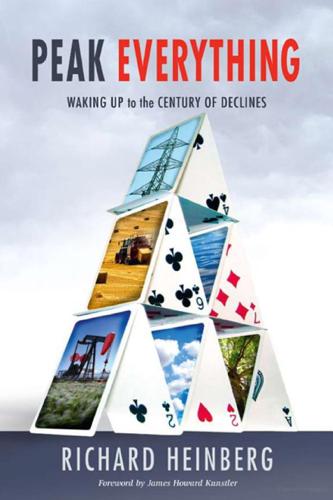
Peak Everything: Waking Up to the Century of Declines
by
Richard Heinberg
and
James Howard (frw) Kunstler
Published 1 Sep 2007
Having already taken a detour into the bleary world of recreational drugs, many of the more spirited Boomers now turned to gurus, meditation, and cults: politics was a bummer; if we really wanted to change the world we should change our heads first. Other Boomers steered toward the stock market and scrambled up the corporate ladder. They got jobs, made money, and discovered that “greed is good.” By the end of the decade it was apparent that the Boomers were divided, with some upholding the Earth Day vision, others honing their skills as right-wing radio talk show hosts, and the rest just trying to get by. Another Fork in the Road Bill Clinton, the first Boomer president (born in 1946), elicited high hopes among his generational peers feeling battered by a dozen years of Reagan/Bush.
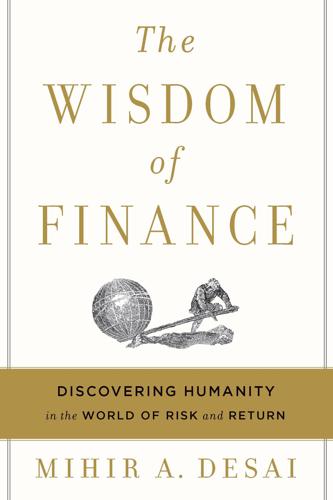
The Wisdom of Finance: Discovering Humanity in the World of Risk and Return
by
Mihir Desai
Published 22 May 2017
Given how pervasive the theme of insatiable desire is in modern-day depictions of finance, it begs the question: Does this theme of insatiable desire reflect an idea grounded in finance? It is tempting to conclude that in fact finance is all about the individual pursuit of more. After all, when Gordon Gekko of Wall Street says “greed is good,” isn’t he actually framing a key insight of economics—that the pursuit of self-interest in some settings can lead to good outcomes? In fact, the most fundamental idea of finance questions the pursuit of more. It is an idea so foundational that it is often not taught and just left unsaid—as I have done so far.
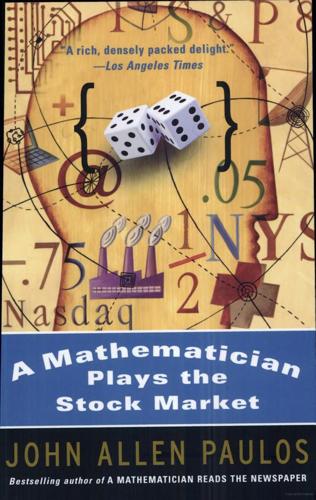
A Mathematician Plays the Stock Market
by
John Allen Paulos
Published 1 Jan 2003
If we (or, more likely, our computer) pick these numbers until their sum exceeds 1, the average number of picks we’d need would be e, about 2.718. The ubiquitous e also happens to equal 1 + 1/1! + 1/2! + 1/3! + 1/4! + . . . , the same expression my professor was writing on the board many years ago. (Inspired by a remark by stock speculator Ivan Boesky, Gordon Gecko in the 1987 movie Wall Street stated, “Greed is good.” He misspoke. He intended to say, “e is good.”) Many of the formulas useful in finance are consequences of these two formulas: A = P(1 + r)t for annual compounding and, for continuous compounding, A = Pert. To illustrate how they’re used, note that if you deposit $5,000 and it’s compounded annually for 12 years at 8 percent, it will be worth $5,000(1.08)12 or $12,590.85.
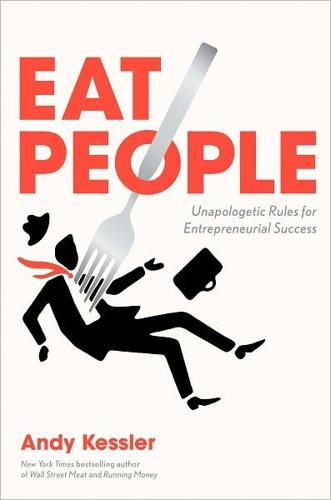
Eat People: And Other Unapologetic Rules for Game-Changing Entrepreneurs
by
Andy Kessler
Published 1 Feb 2011
The stock market allocates precious capital to companies it thinks can maximize profits and starves those that can’t. In other words, the stock market is democracy’s half-evil henchman, whose tool is the size of the carrot, not the use of the stick. The tenets of capitalism’s great economists, from Adam Smith’s Invisible Hand to Joseph Schumpeter’s Creative Destruction and Gordon Gekko’s Greed Is Good, are all powerful concepts, but it’s profits and the stock market that carry out the dirty work. No Five-Year Plans. All men are created equal, but a few of you need to be canned and retrained so progress can happen again. New industries get funded and start hiring again. But which ones? The ones with the best prospects for profits.
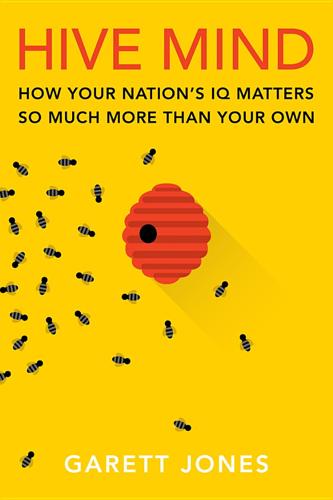
Hive Mind: How Your Nation’s IQ Matters So Much More Than Your Own
by
Garett Jones
Published 15 Feb 2015
Prisoner’s dilemmas are everywhere, and they’re the precise opposite of Adam Smith’s famous “invisible hand,” in which individual greed leads to a positive group outcome. Invisible hands and prisoner’s dilemmas are both at work in the world: sometimes, as Gordon Gekko said in the movie Wall Street, “Greed is good,” and sometimes greed creates misery. In this and the next chapter, we’ll see how greed can create misery, and we’ll see how higher-IQ groups are just a bit more likely to find a way to cooperate, a bit more likely to avoid the prisoner’s dilemma. The Real Prisoner’s Dilemma First off, let’s go back to the source—the classic economic example of when greed is bad.
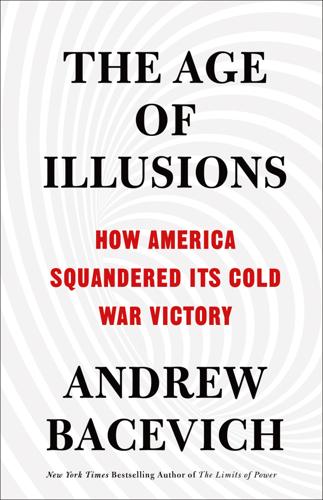
The Age of Illusions: How America Squandered Its Cold War Victory
by
Andrew J. Bacevich
Published 7 Jan 2020
Inverting the title of William Wyler’s Oscar-winning film of 1946, the journalist Barbara Ehrenreich surveyed the period and called it The Worst Years of Our Lives.5 If Wyler’s Best Years had seemed to capture the essence of the immediate postwar period, its 1980s counterpart was Oliver Stone’s Wall Street, released in 1987. Stone’s film centered on a cutthroat business executive, Gordon Gekko, who operated on the principle that “greed is good.” In comparison with Trump’s real-life brashness and extravagance, the celluloid Gekko looked like a piker. Like Gekko, however, Trump embodied values that seemed, at least for a moment, to express something essential about the United States. In October 1989, People magazine took a stab at explaining Trump’s standing in contemporary culture while hinting at its potential political implications.
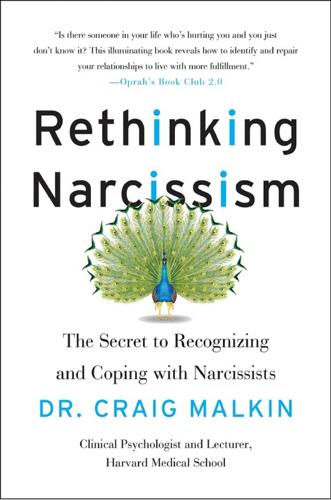
Rethinking Narcissism: The Bad---And Surprising Good---About Feeling Special
by
Dr. Craig Malkin
Published 6 Jul 2015
Four centuries after Aristotle, Christian teachings added a negative fillip: making too much of oneself constitutes the sin of pride (and a quick path to hell). Excesses of the self underlie other sins—sloth, greed, gluttony, and envy—as well. Down through the centuries, the debate raged, engaging philosophers from Thomas Hobbes (self-love is part of brutish human nature) to Adam Smith (self-interest benefits society, aka “greed is good”). It wasn’t until the end of the 19th century, however, that the debate entered into the circles of medicine and psychology and the word narcissism first appeared. In 1898 pioneering British sexologist Havelock Ellis described patients who’d literally fallen in love with themselves, sprinkling their bodies with kisses from their own lips and masturbating to excess, as suffering from a “Narcissus-like” ailment.
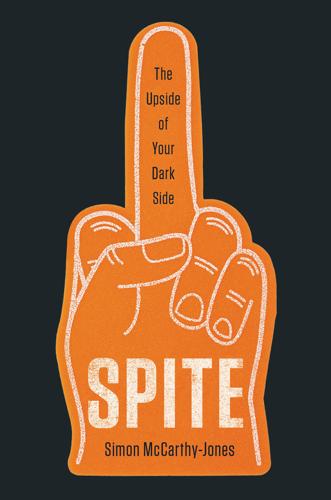
Spite: The Upside of Your Dark Side
by
Simon McCarthy-Jones
Published 12 Apr 2021
The famous eighteenth-century economist Adam Smith claimed that people were “not very frequently under the influence” of spite, and that even if it did occur we would be “restrained by prudential considerations.”5 Much later, in the 1970s, the American economist Gordon Tullock claimed that the average human was about 95 percent selfish.6 In the “greed is good” era of the 1980s, many may have believed that this estimate was on the low side. Economists viewed humans as a creature called Homo economicus—a being that acted rationally to maximize its self-interest. Self-interest was typically, though not always, understood in financial terms.7 Yet, as I will discuss in Chapter 1, back in 1977 a groundbreaking study found that people were often quite happy to turn down free money.
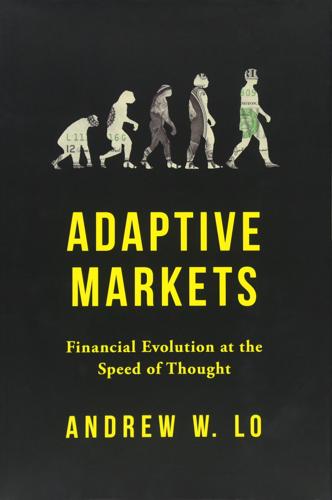
Adaptive Markets: Financial Evolution at the Speed of Thought
by
Andrew W. Lo
Published 3 Apr 2017
With sufficient repetition, the action associated with the dopamine release becomes habit. In the case of cocaine, we call it an addiction. In the case of monetary gain, we call it capitalism. Our most fundamental reaction to monetary gain is hardwired into human physiology. Apparently, we know it instinctively: greed is good. To explore this notion of greed further, let’s return to Tversky and Kahneman’s prospect theory from chapter 2. The two psychologists discovered that not only are we fearful, risk-averse creatures when it comes to gains, but we are also greedy, risk-seeking creatures when it comes to losses.
…
FINANCE AND THE GORDON GEKKO EFFECT Part of the challenge in thinking about fairness in finance is culture. We don’t usually ask whether a market transaction is fair or not—as long as two mutually consenting adults agree to an exchange, that seems fair enough. But the culture of Homo economicus can sometimes be taken to the extreme, as reflected by one of the most famous lines in movie history: “Greed is good.” In fact, this is a slight adaptation of Michael Douglas’s actual line in the 1987 movie Wall Street, in which Douglas plays the sleazy yet charismatic financier Gordon Gekko. “The point is, ladies and gentleman, that greed, for lack of a better word, is good.” Douglas’s performance is riveting and one might wish that typical corporate meetings were as dramatic.
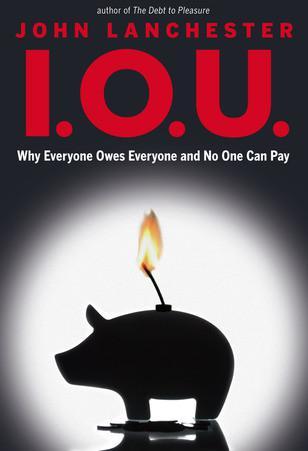
I.O.U.: Why Everyone Owes Everyone and No One Can Pay
by
John Lanchester
Published 14 Dec 2009
In Britain in the last twenty to thirty years that has all been the wrong way round. There was a kind of reverse takeover, in which City values came to dominate the whole of British life. There needs to be a general acceptance that the model has failed: the brakes-off, deregulate or die, privatize or stagnate, lunch is for wimps, greed is good, what’s good for the financial sector is good for the economy model; the “sack the bottom 10 percent,” bonusdriven, “if you can’t measure it, it isn’t real” model; the model which spread from the City to government and from there through the whole culture, in which the idea of value has gradually faded to be replaced by the idea of price.
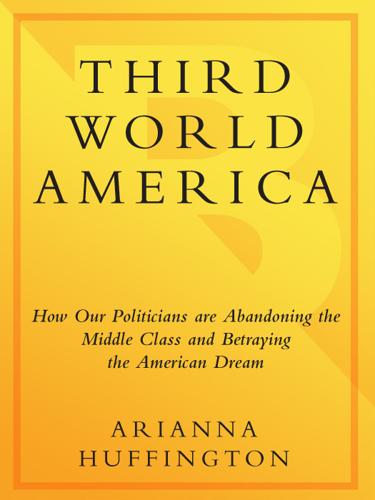
Third World America: How Our Politicians Are Abandoning the Middle Class and Betraying the American Dream
by
Arianna Huffington
Published 7 Sep 2010
Think Bigger, Way Bigger,” 13 May 2010, www.huffingtonpost.com. 54 The names of the Wall Streeters: Matthew Vadum, “Goldman Sachs Government,” 16 Oct. 2008, www.spectator.org. 55 The finance industry has 70 former members of Congress: Public Citizen, “Stop Congress’ Revolving Door of Corruption,” www.citizen.org. 56 This includes 33 chiefs of staff, 54 staffers of the House: Arthur Delaney, “Big Bank Takeover: Report Blames Revolving Door for ‘Too Big to Fail,’ ” 11 May 2010, www.huffingtonpost.com. 57 Five of Senate Banking Committee chair Chris Dodd’s: Kevin Connor, “Big Bank Takeover: How Too-Big-to-Fail’s Army of Lobbyists Has Captured Washington,” Institute for America’s Future, 11 May 2010, www.ourfuture.org. 58 Of course, the revolving door spins both ways: Arthur Delaney, “Big Bank Takeover: Report Blames Revolving Door for ‘Too Big to Fail,’ ” 11 May 2010, www.huffingtonpost.com. 59 On the mining front, former Massey chief operating officer: Brad Johnson, “Don Blankenship’s Record of Profits Over Safety: ‘Coal Pays the Bills,’ ” 8 Apr. 2010, www.thinkprogress.org. 60 At the time of the Upper Big Branch accident he was: Ibid. 61 And President Bush named Massey executive Richard Stickler: Ibid. 62 Stickler had such a lousy safety record: Ibid. 63 That’s what happened when Bush put Edwin Foulke: Stephen Labaton, “OSHA Leaves Worker Safety in Hands of Industry,” 25 Apr. 2007, www.nytimes.com. 64 Earlier in his career, while serving as chairman: Ibid. 65 Then there was Bush’s choice of Mary Sheila Gall: “Mary Sheila Gall Named to Chair CPSC,” 20 Apr. 2001, www.consumeraffairs.com. 66 In her ten years on the commission: Lizette Alvarez, “Consumer Product Safety Chief Sets Deadline to Resign,” 9 Aug. 2001, www.nytimes.com. 67 She even adopted a “Let them eat marbles” stance: Hearing on the nomination of Mary Sheila Gall to chair the Consumer Product Safety Commission before the Committee on Commerce, Science, and Transportation, U.S. Senate, 25 Jul. 2001, www.gpo.gov. 68 And while I’m all for slapping warnings: Matthew Robinson and Daniel Murphy, Greed Is Good: Maximization and Elite Deviance in America (Lanham, MD: Rowman & Littlefield, 2009), 94–95. 69 Thankfully, the Senate refused to confirm Gall: Caroline E. Mayer, “Senate Panel Rejects Bush’s Choice for Consumer Job,” 3 Aug. 2001, www.sfgate.com. 70 Undeterred, Bush filled the slot with Harold Stratton: Daphne Eviatar, “Toy Story,” 3 Jan. 2008, www.thenation.com. 71 Following the money once again: Center for Responsive Politics, “Pharmaceuticals/ Health Products: Long-Term Contribution Trends,” 1990–2010, www.opensecrets.org. 72 In return, the Bush administration served up: Marc Kaufman, “Former FDA Chief Illegally Held Stocks,” 17 Oct. 2006, www.washingtonpost.com. 73 And, if you want to see “overly cozy” run amok: Charlie Savage, “Sex, Drug Use and Graft Cited in Interior Department,” 10 Sep. 2008, www.nytimes.com. 74 We saw how all those former Senate and House staffers: Brian Beutler, “Do Baucus’ Ties to Health Care Industry Compromise His Reform Efforts?”
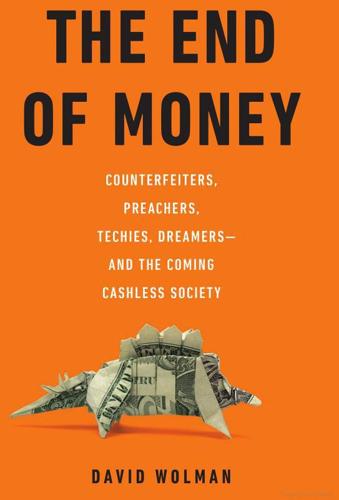
The End of Money: Counterfeiters, Preachers, Techies, Dreamers--And the Coming Cashless Society
by
David Wolman
Published 14 Feb 2012
When the doors open onto the top floor, I walk into an empty gray-carpeted suite with windows looking down on the mini city and across the water to bluffs in the distance. In front of one window, four metal chairs are aligned side by side facing out to the Reykjavik harbor. Visiting a place like Iceland and thinking about money is different than doing so in a megalopolis like New York or London. There, everything is money. Not necessarily in the “greed is good” sense, but in the way that a cityscape is entirely manmade. Virtually every square inch of it involves economic activity, and in each office, apartment, restaurant, gallery, and bar, commerce is king. In a place like Reykjavik, though, you can look right past the city onto inhospitable wilderness.
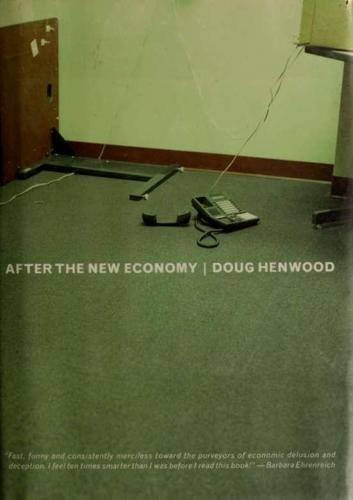
After the New Economy: The Binge . . . And the Hangover That Won't Go Away
by
Doug Henwood
Published 9 May 2005
Regardless of the financial maneuver, the operational strategy was similar: shut or sell weak divisions, lay off workers, cut wages, break unions (where they existed), speed up the Hne, get the profit rate up. The moral philosophy of this period was nicely summed up by Oliver Stone's Gordon Gekko, channeUng the most famous inside trader of all time, Ivan Boesky: "Greed is good." Unfortunately, these maneuvers usually involved lots of debt, and the debt load proved crippHng by decade's end. So there was a shift of strategy toward shareholder activism. Led by large pension funds, particularly the CaHfornia PubHc Employees Retirement System (Calpers), institutional investors drew up hit lists of saggy companies, and pressed management to shape up or ship out.
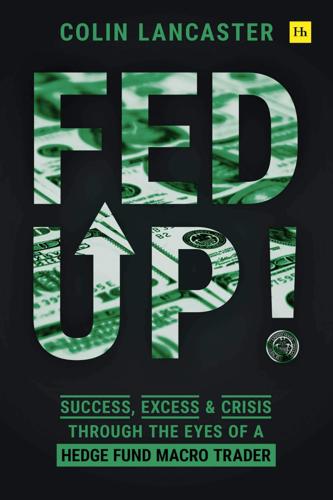
Fed Up!: Success, Excess and Crisis Through the Eyes of a Hedge Fund Macro Trader
by
Colin Lancaster
Published 3 May 2021
Greenspan gave us low interest rates. They dubbed it “lower for longer.” But this was really just lighter fluid on a fire. It told people to get greedy. I’m not talking about everyday risk taking and speculation, normal human greed. I’m not even talking about Gordon Gekko in the ‘80s. This is much more than “greed is good.” I’m talking about steal as much as you can, and if you’re wrong, we’ll bail you out. I’m talking about too big to fail and moral hazard. I’m talking about Rihanna playing to a bunch of hustlers at a mortgage convention boondoggle. “Does that mean that Greenspan caused it?” Jerry asks. I don’t think it’s the best question he could have asked.
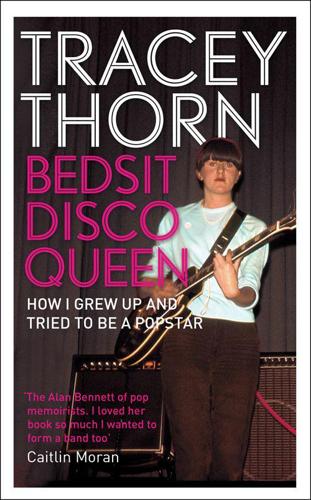
Bedsit Disco Queen: How I Grew Up and Tried to Be a Pop Star
by
Tracey Thorn
Published 7 Feb 2013
It’s not possible to say that you watched not a second of the wedding, and that you were dismissive of Live Aid, without sounding like a complete killjoy outsider, but many of us simply lived an entirely different set of experiences, which seem to have gone unrecorded and unwritten about, so that it’s as though they never happened. Scenes which I never witnessed in my life – yuppies chugging champagne in City wine bars, toffs dancing in puffball skirts to Duran Duran – have now become the universal TV shorthand used to locate and define the era. In place of the supposed ambition and Greed is Good ethos, within the world of the alternative band we still adhered somewhat piously to the altruism of the benefit gig. In the mid-1980s we had our own causes, and the benefit gigs were many and various. In 1984 I had sung vocals on a track called ‘Venceremos’ with Simon Booth’s Working Week, in support of Chilean opposition to the Pinochet regime.
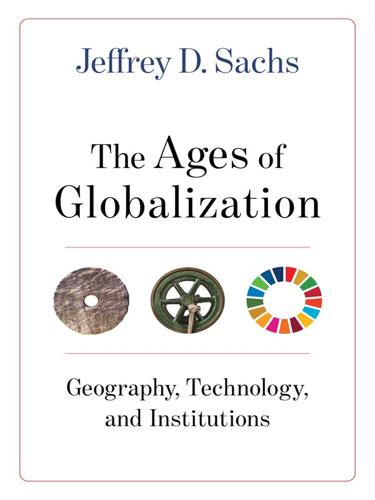
The Ages of Globalization
by
Jeffrey D. Sachs
Published 2 Jun 2020
The Spanish monarchy, for instance, eventually outlawed the enslavement of native populations in the Americas in the New Laws of 1542. Yet those demurrals were limited, to say the least. The age of global empire was also an age of monumental cruelty, with ruthless greed built into the emerging capitalist order. By the eighteenth century, a new ideology was taking form, especially in Britain, that “greed is good” (to use a recent summary formulation), because greed spurs a society’s efforts and inventiveness. By giving vent to greed, the logic goes, societies can best harness the insatiable ambitions, great energies and ingenuity of their citizens. While greed by itself might be unappetizing and seem to be antisocial, the unleashing of greed could in fact lead to the common good.
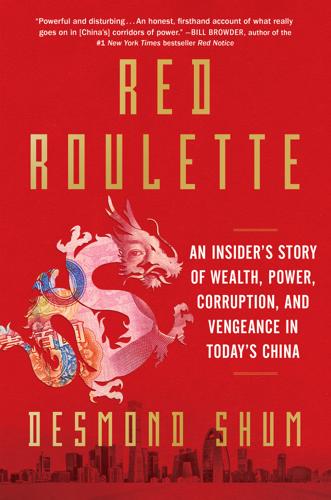
Red Roulette: An Insider's Story of Wealth, Power, Corruption, and Vengeance in Today's China
by
Desmond Shum
Published 6 Sep 2021
At the Goldman interview, I got into an argument about racism and raised my voice. Neither called me back. I settled on a position as a stockbroker with the brokerage firm Citibank Vickers. I thought the job would be the most exciting in the world. All of us in that generation had watched Michael Douglas as Gordon Gekko in the blockbuster Wall Street memorably declare, “Greed is good.” But I soon discovered that being a broker wasn’t all that it was cracked up to be. In Hong Kong, at least, it was about who, not what, you knew. If you had well-heeled contacts, you could make it. But as a junior broker with a limited social circle, I was always waiting for my boss to toss me trades that were too small or too tedious for him to execute.
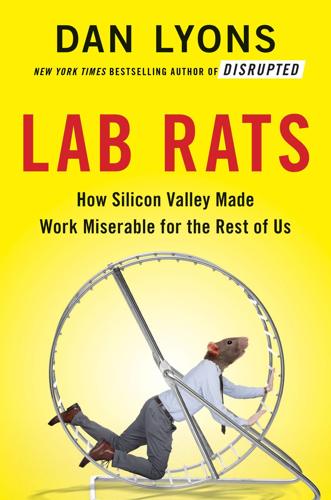
Lab Rats: How Silicon Valley Made Work Miserable for the Rest of Us
by
Dan Lyons
Published 22 Oct 2018
In the past three chapters I’ve looked at entrepreneurs and investors who are trying to build worker-friendly companies with cultures that are more inclusive and create opportunities for a wider range of people. But how can their ideas spread into the wider world of work? To do that, you need to create a movement. You need to develop a new generation of young people who are not brainwashed with Milton Friedman’s greed-is-good doctrine, and will push back against it, and demand that workers should share in the wealth their labor creates, and stand on equal footing with investors. You need to create a new ideology—a new form of capitalism. In the next chapter, I’ll tell you about people who are doing that, under the banner of what’s called the social enterprise movement.
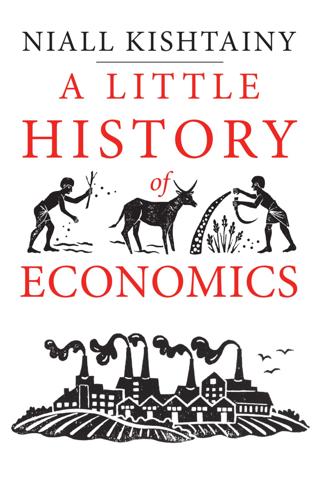
A Little History of Economics
by
Niall Kishtainy
Published 15 Jan 2017
Next time you’re in your local shop, look around at the crates of tomatoes, cartons of milk and piles of newspapers. How did they get there? Because the shopkeeper decided to buy them in order to sell them to people like you who want them. No one – not the government, not anyone – told the shopkeeper what to do. It’s tempting to think of Smith’s idea of the invisible hand as ‘greed is good’. This would be a distortion of it, though. Smith saw that commercial society involved a range of good human qualities. Bakers and butchers are often nice to other people. They feel sad when their friends get ill or lose money. That’s how people develop a sense of right and wrong. Commerce wouldn’t work very well if people were totally selfish all the time: bakers would lie about the weight of their loaves and brewers would water down their beer.
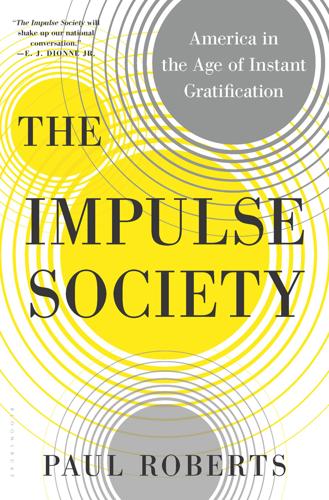
The Impulse Society: America in the Age of Instant Gratification
by
Paul Roberts
Published 1 Sep 2014
There was even a raiders’ gala—a posh annual conference hosted by the deal-making firm Drexel Burnham Lambert for all the big names in restructuring, known as the “Predators’ Ball.” For many critics, and a great many more traumatized former employees, the corporate raider perfectly captured the “greed is good” zeitgeist that overran American corporate culture in the 1980s. But to an emerging school of conservative economists, the raider was nothing less than an economic savior. Raiders had appeared because share prices were falling, and share prices had fallen in part because the companies were being mismanaged.
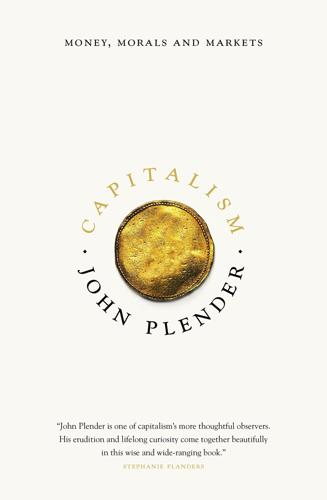
Capitalism: Money, Morals and Markets
by
John Plender
Published 27 Jul 2015
It suffered from the flaw that in a society marked by an uneven distribution of income favouring a numerically small elite, the rich had plenty of spending power to satisfy their desires, but not enough buying power to dynamise the economy to its full potential to raise real incomes.8 The German sociologist and economist Werner Sombart nonetheless argued two centuries later that luxury played an important part in the development of capitalism. 9 And Mandeville’s point has trickled down through history. To name just one example, Gordon Gekko’s ‘greed is good’ speech in the film Wall Street clearly descends in a direct line from the author of the fable. The Fable of the Bees was not universally admired by other Enlightenment thinkers. Adam Smith could not bring himself to accept the extremity of Mandeville’s paradox, in which vice was a necessary condition of prosperity.
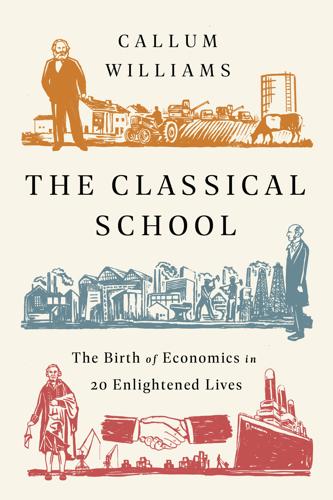
The Classical School
by
Callum Williams
Published 19 May 2020
When push comes to shove, we recognise “that we are but one of the multitude, in no respect better than any other in it”. People are not inherently selfish, according to Smith, but inherently social. Thy bloody and invisible hand The true meaning of that famous phrase, “invisible hand”, is also interesting. Many pundits use the phrase to encapsulate a supposed “greed is good” philosophy. That argument rests on a number of profound misunderstandings. First things first: Smith mentions the phrase “invisible hand” just three times in his entire published output. On each occasion the phrase is used in a completely different context–and never to mean what it means in the popular understanding.
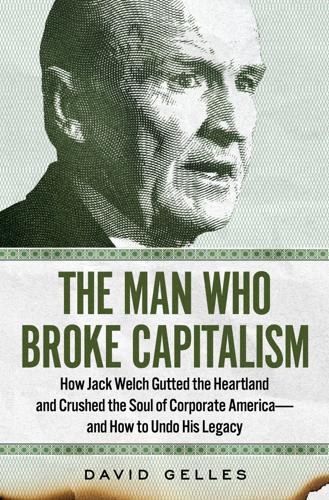
The Man Who Broke Capitalism: How Jack Welch Gutted the Heartland and Crushed the Soul of Corporate America—and How to Undo His Legacy
by
David Gelles
Published 30 May 2022
His success proved that there was another way to do business, offering further evidence that Welchism was not a winning strategy. And a couple years after Unilever rebuffed Kraft Heinz, reflecting on the deal, Polman couldn’t help but gloat. “Since then, their share price is down 70 percent, and they now face legal issues around reporting,” he said. “Our share price is up about 50 percent. Some people think greed is good. But over and over it’s proven that ultimately generosity is better.” Polman was an outlier when he took over Unilever, one of the few CEOs willing to question the status quo and set ambitious targets to reduce the harm his company did to the world. Yet today Polman is one of many. Over the past decade, he has been joined by a diverse array of CEOs who have found different ways to push back against Welchism, an effort that extends from the European headquarter of Unilever to the techno-utopian campuses of Silicon Valley.
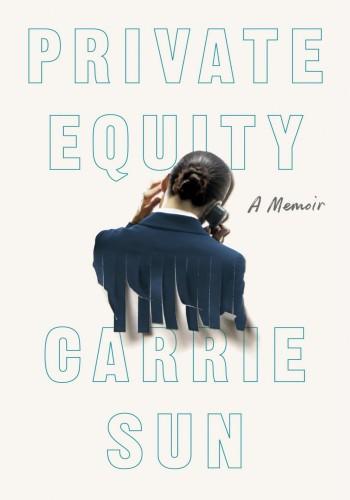
Private Equity: A Memoir
by
Carrie Sun
Published 13 Feb 2024
He seemed to believe that the human aspects of the Firm would, if the returns were high enough, self-sort. If you have the highest returns and the highest pay, nearly everything will solve itself because the people—internal workers and external LPs—will convince themselves that they want to be a part of your mission. Greed is good because it makes things predictable. No need to coerce or enforce or foist any delusions when you have people volunteering to do the labor of self-persuasion. Case in point: Carbon was down over 20 percent and did not lose investors. Money can solve nearly everything. Nearly everything. The real enemy of a hedge or venture or crossover fund was any person who was not in the room and who could not be persuaded to want to be in the room.
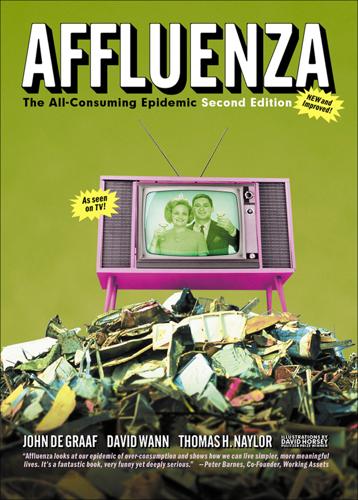
Affluenza: The All-Consuming Epidemic
by
John de Graaf
,
David Wann
,
Thomas H Naylor
and
David Horsey
Published 1 Jan 2001
For one thing, there are no ads to be seen anywhere in the America pictured in those political commercials, no billboards, no product being sold except Reagan. That’s not America anymore. Reagan’s decade may have been that of supply-side economics, but it was also the decade of demand creation. Yuppies were made, not born. “Greed is good,” chirruped Wall Street’s Ivan Boesky. The message of Reagan’s first inaugural ball and Nancy’s $15,000 dress was clear: It’s cool to consume and flaunt it. The tone of ’80s advertising echoed the sentiment: “Treat Yourself. You Deserve a Break Today. You’re Worth It.” Look out for number one.
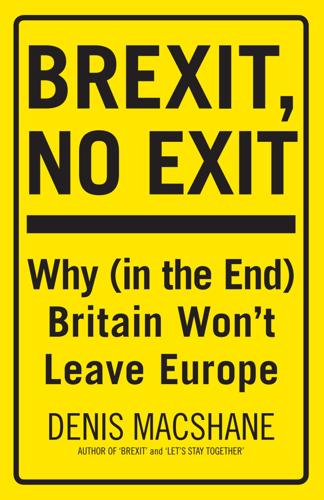
Brexit, No Exit: Why in the End Britain Won't Leave Europe
by
Denis MacShane
Published 14 Jul 2017
To be sure, these are big ambitions, but if the broad mass of employed people do not believe they want to join a union or entertain the idea of trade unionism as a force to help achieve what Hobbes called ‘commodious living’, then they are more easily seduced by the populist appeals of the far right and hard left against cooperation and sharing power in Europe. More and more of the evangelists of the deregulated, society-destroying, ‘greed-is-good’ and survival-of-the-fittest economic model are now running around telling us there are real problems with unequal distribution, poverty and the revolt of voters who have lost confidence in traditional parties of government. But moving to a new paradigm demands new forms of political and labour movement organisation.
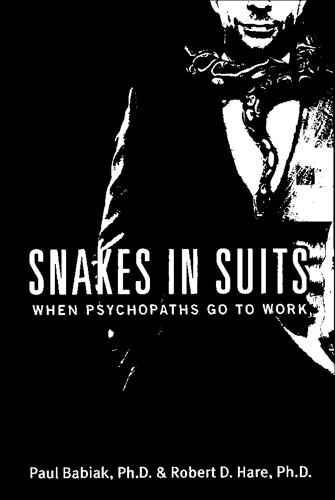
Snakes in Suits: When Psychopaths Go to Work
by
Dr. Paul Babiak
and
Dr. Robert Hare
Published 7 May 2007
Some who have faltered may have experienced a weakened moral sense of “right” in the face of excessive temptation and easy access to power. Others may feel justified in reaping the rewards in proportion to the size of the organization they lead, arguing that their extravagances seem excessive only to those who have little hope of being so rewarded. Still others have embraced the self-serving mantras that “greed is good” and that success at any cost to others is justifiable and even desirable. But another group exists, one whose behaviors and attitudes are potentially much more destructive to the organization and its employees than those noted above who are motivated by greed or big egos. This group, the subject of this book, displays a personality disorder rooted in lying, manipulation, deceit, egocentricity, callousness, and other potentially destructive traits.
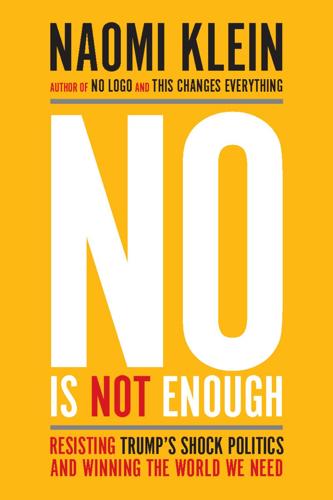
No Is Not Enough: Resisting Trump’s Shock Politics and Winning the World We Need
by
Naomi Klein
Published 12 Jun 2017
A state of shock is produced when a story is ruptured, when we have no idea what’s going on. But in so many ways explored in these pages, Trump is not a rupture at all, but rather the culmination—the logical end point—of a great many dangerous stories our culture has been telling for a very long time. That greed is good. That the market rules. That money is what matters in life. That white men are better than the rest. That the natural world is there for us to pillage. That the vulnerable deserve their fate and the one percent deserve their golden towers. That anything public or commonly held is sinister and not worth protecting.
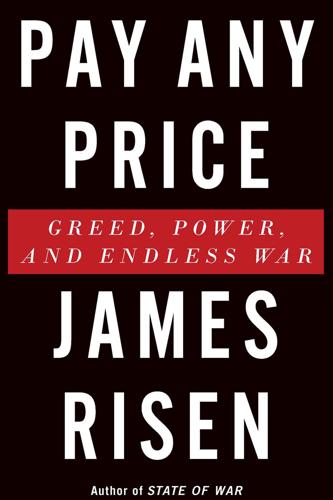
Pay Any Price: Greed, Power, and Endless War
by
James Risen
Published 15 Feb 2014
He usually came up short but that didn’t stop him from playing blackjack on a nightly basis, racking up unwieldy debts that eventually led to his 2010 arrest for bouncing more than $1 million in bad checks at Caesar’s Palace in Las Vegas. Gambling is how he met his first backer, Warren Trepp. Trepp got rich in the biggest casino of them all, Wall Street. He had been Michael Milken’s right-hand man in the heyday of Milken’s famous Beverly Hills trading desk during the “greed is good” era of insider trading in the 1980s. When a hungry federal prosecutor named Rudolph Giuliani went after Milken for insider trading, he tried to get Trepp to roll over on his boss. Trepp refused, even in the face of a threat that he would be charged himself if he failed to cooperate. Milken went to jail, but Giuliani never could nail Trepp.
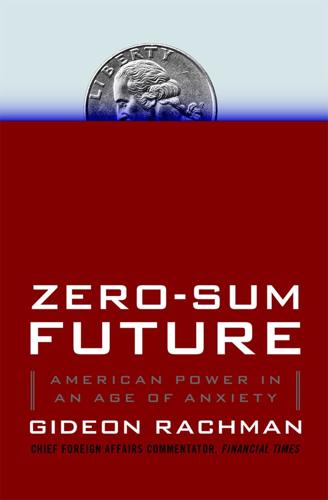
Zero-Sum Future: American Power in an Age of Anxiety
by
Gideon Rachman
Published 1 Feb 2011
By 2006, the richest 1 percent gobbled up 23 percent of national wealth.16 In the United States and the United Kingdom, the success of the free-market reforms of the 1980s was closely associated with a boom in the financial services industry, which was swiftly reflected in house prices and popular culture. In the States, the boom was captured in the film Wall Street, with its catchphrase “greed is good,” and in Tom Wolfe’s novel The Bonfire of the Vanities. The Dow Jones Industrial Average, which stood at 950 on the day Reagan took office, reached a peak of over 2,700 in August 1987—before the stock-market crash of October of that year.17 Some of Reagan’s critics on the left never accepted that his economic policies had succeeded.
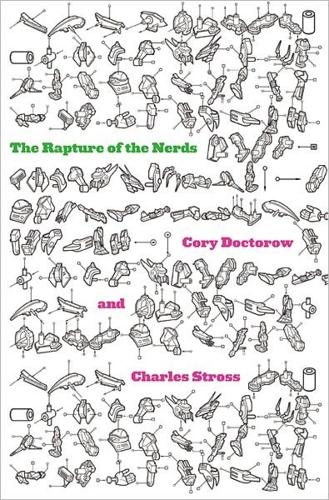
The Rapture of the Nerds
by
Cory Doctorow
and
Charles Stross
Published 3 Sep 2012
The dress code is similarly over the top, as Huw realizes when she notices the djinni is wearing an antique Armani suit. She’s no expert on haute couture: she realizes she probably ought to recognize the designer of the cocktail dress the scanner selected for her, but she’s too busy fighting with the insane footwear to care about such minor details. Mid-1980s: Greed is good. It seems a fitting context in which to discuss the identity of a person or persons who might be trying to steal a planet’s worth of computronium. The whole thing is so massively, monstrously over the top—like a nuclear aircraft carrier tricked out as a private yacht—that it takes Huw a moment to realize that she and the djinni are alone.
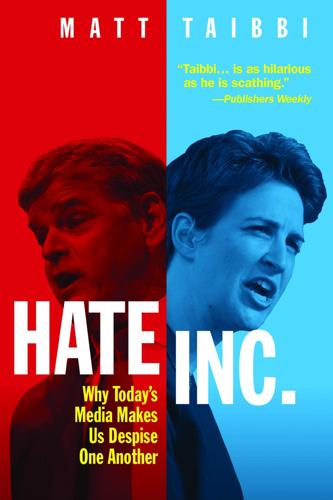
Hate Inc.: Why Today’s Media Makes Us Despise One Another
by
Matt Taibbi
Published 7 Oct 2019
Current levels are about three times what they were when Ronald Reagan became president. Goldberg was in the ballpark of the right question: why were the networks freaking out about it back then, and not before or after? Among other reasons, reporting on homelessness in the Reagan years was a popular means of decrying the “Greed is good” era. Talking about the issue became a way of showing you cared. This was satirized by Bret Easton Ellis in American Psycho. His deranged killer Patrick Bateman, while dining at an upscale restaurant called “espace,” interrupts everyone’s overpriced dinner to give a speech about all of the things the news tells him to care about.
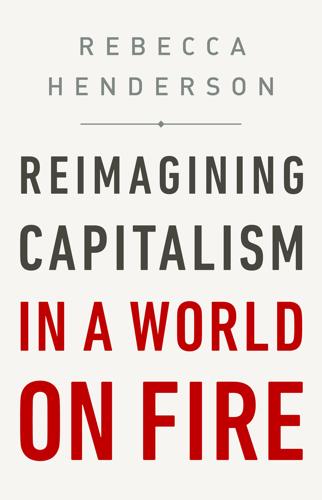
Reimagining Capitalism in a World on Fire
by
Rebecca Henderson
Published 27 Apr 2020
Those firms that have a clearly defined purpose beyond profit maximization, where it is clearly understood that the purpose of the firm is not to make shareholders rich, but to build great products in the service of the social good—these are the firms that have the courage and the skills to navigate transformation. Redefining the purpose of the firm is central to reimagining capitalism. What exactly this means and what it might look like in practice is the subject of the next chapter. 4 DEEPLY ROOTED COMMON VALUES Revolutionizing the Purpose of the Firm Some people think greed is good. But over and over it’s proven that ultimately generosity is better. —PAUL POLMAN, RETIRED CEO OF UNILEVER1 On January 12, 2015, in a packed hotel ballroom in Jacksonville, Florida, Mark Bertolini, the CEO of Aetna, announced that beginning in April the firm would be paying a minimum wage of $16/hour.2 Aetna was one of the largest health insurance companies in the world, and his move made headlines.
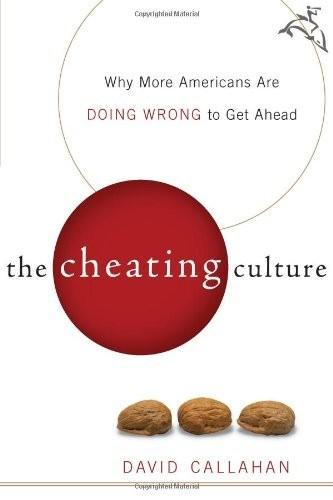
The Cheating Culture: Why More Americans Are Doing Wrong to Get Ahead
by
David Callahan
Published 1 Jan 2004
Why worry about being censured by your state's medical society for taking kickbacks to prescribe certain drugs when those groups are more interested in protecting the interests of doctors than of the general public? Why worry about being thrown out of baseball for using steroids when neither of the major leagues has mandatory drug testing? Growing temptations to cheat have been all the more seductive given the trumpeted morality of the free market. If competition is good—if even greed is good—than maybe questionable cutthroat behavior is also good. In principle, few Americans embrace the idea that "might makes right." In practice, this idea now flourishes across our society, and much of the new cheating is among those with the highest incomes and social status. The Winning Class's clout inevitably has produced hubris and a sense that the rules governing what Leona Helmsley called "the little people" do not apply to them.
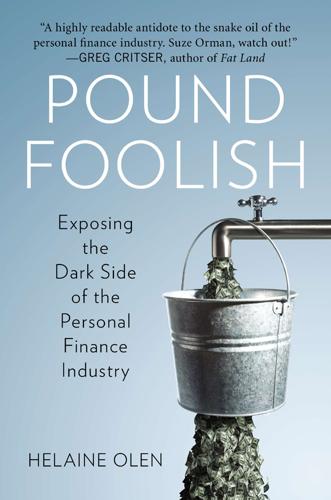
Pound Foolish: Exposing the Dark Side of the Personal Finance Industry
by
Helaine Olen
Published 27 Dec 2012
he said in a recent Time magazine interview. Knowing what we do about the state of the American retirement system, he has a point, if not the solution. Kiyosaki’s not howling at you for being in debt like Suze Orman, Dave Ramsey, and David Bach are. He’s howling at you for being in the wrong sort of debt. Greed is good, he tells us. “The problem I sense today,” he writes in Rich Dad, Poor Dad, “is that there are millions of people who feel guilty about their greed. It’s an old conditioning from their childhood. Their desire to have the finer things that life offers. Most have been conditioned subconsciously to say, ‘You can’t have that,’ or ‘You’ll never afford that.’”
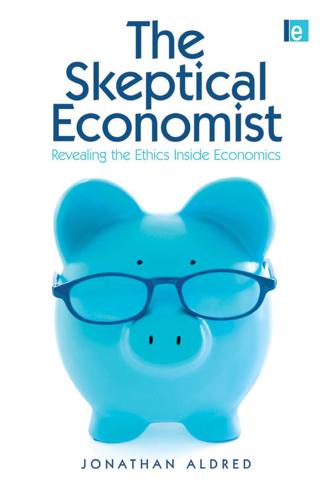
The Skeptical Economist: Revealing the Ethics Inside Economics
by
Jonathan Aldred
Published 1 Jan 2009
Survey evidence on charitable giving, and laboratory studies of behaviour in games such as the Ultimatum Game, both show economics students becoming more selfish over the duration of their courses.56 If this kind of intensive exposure to the Homo economicus doctrine increases selfishness, there may well be a similar, albeit milder, effect on people with more limited exposure to the doctrine. Does reading The Economist or Freakonomics make you more selfish? Although exposure to the doctrine from just watching television news is much more limited, the effect may be exaggerated because by that stage the doctrine is caricatured, becoming simply ‘Greed is Good’.57 Unfortunately, in the absence of research studying the impact of the doctrine as presented in the mainstream media, these questions cannot be answered directly. But there is evidence on a related issue. Some constitutional frameworks and legal systems both presume and affirm that citizens can be trusted to act responsibly, cooperate and not always put their narrow self-interest above the common good.
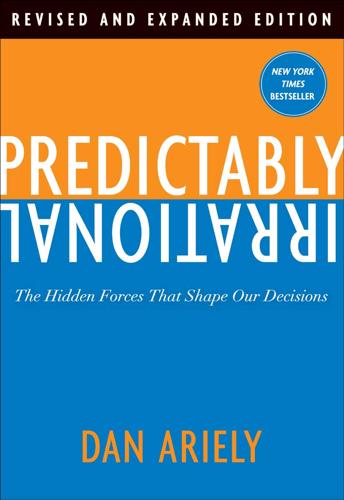
Predictably Irrational, Revised and Expanded Edition: The Hidden Forces That Shape Our Decisions
by
Dan Ariely
Published 19 Feb 2007
The scary thought is that if we did the experiments with nonmonetary currencies that were not as immediately convertible into money as tokens, or with individuals who cared less about their honesty, or with behavior that was not so publicly observable, we would most likely have found even higher levels of dishonesty. In other words, the level of deception we observed here is probably an underestimation of the level of deception we would find across a variety of circumstances and individuals. Now suppose that you have a company or a division of a company led by a Gordon Gekko character who declares that “greed is good.” And suppose he used nonmonetary means of encouraging dishonesty. Can you see how such a swashbuckler could change the mind-set of people who in principle want to be honest and want to see themselves as honest, but also want to hold on to their jobs and get ahead in the world? It is under just such circumstances that nonmonetary currencies can lead us astray.
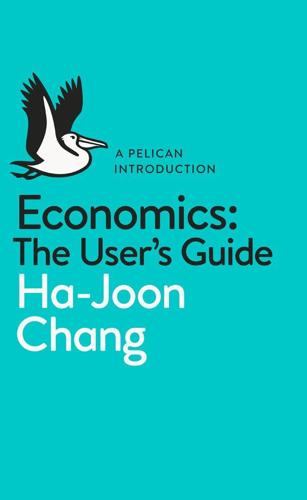
A Pelican Introduction Economics: A User's Guide
by
Ha-Joon Chang
Published 26 May 2014
The rapid increase in hostile takeovers, in which a company is taken over against the will of the existing management, changed the whole corporate culture in the US. Many of those taking over were ‘corporate raiders’ only interested in asset stripping (namely, the sales of valuable assets, regardless of the impact on the long-term viability of the company), immortalized by Gordon ‘Greed-is-good’ Gekko in the 1987 movie Wall Street. To avoid such a fate, firms had to deliver profits faster than before. Otherwise impatient shareholders would sell up, reducing the share prices and thus exposing the firm to greater danger of hostile takeover. The easiest way for companies to deliver quick profit was through downsizing – reducing the workforce and minimizing investments beyond what is necessary for immediate results, even though these actions diminish the prospect of the company in the longer run.
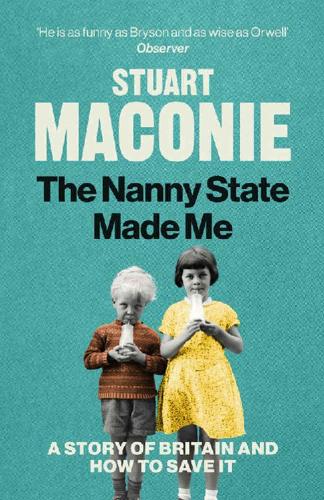
The Nanny State Made Me: A Story of Britain and How to Save It
by
Stuart Maconie
Published 5 Mar 2020
CHAPTER 10 I LOOK FORWARD ‘SELLING ENGLAND BY THE POUND’ ‘It is difficult, if not impossible, to combine the citizens’ rights and interests and the private enterprise’s interests, because the private enterprise aims at its natural and justified objective, the biggest possible profit.’ Joseph Chamberlain ‘Greed is good.’ Gordon Gekko The Upper Derwent Valley, Derbyshire. A fine, calm, April evening, the air warm and still, the kiss of breeze very welcome. The journey up here out of Manchester through the city’s weekday rush hour is never something you’d call pleasant; smothered in the damp armpit or bulky backpack of a fellow traveller on a stifling privatised train, or tail to tail in the fuming cars that crawl through the winding bottlenecks of the A57 to Glossop and Sheffield.
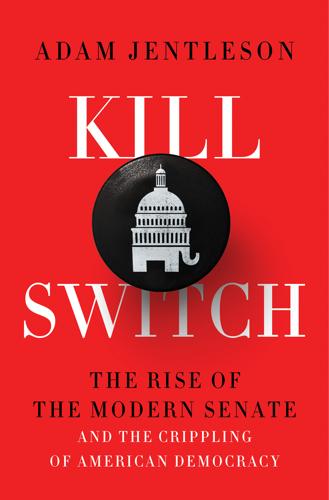
Kill Switch: The Rise of the Modern Senate and the Crippling of American Democracy
by
Adam Jentleson
Published 12 Jan 2021
By 2010, the five largest foundation funders had contributed $17.3 million to what was essentially a job bank for conservative judges.20 As Jane Mayer writes in Dark Money, this level of funding allowed the Society to grow “from a pipe dream shared by three ragtag law students into a professional political network of forty-two thousand right-leaning lawyers.”21 A major element of the conservative judicial philosophy honed by the Federalist Society was the legal equivalent of the “greed is good” zeitgeist of the time: inflating money into something grander than dollars and cents. If money was just money, using it to influence the political process was tawdry. But if money was speech, efforts to restrict it were unconstitutional violations of Americans’ First Amendment rights. As such, virtually all restrictions on the amount of money that could be spent on politics should be abolished, the theory went.
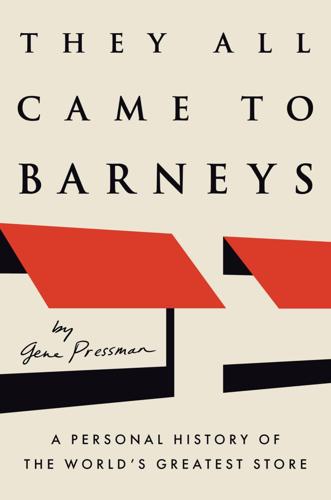
They All Came to Barneys: A Personal History of the World's Greatest Store
by
Gene Pressman
Published 2 Sep 2025
Stocks were up, and corporate raiders were the new antiheroes. The leveraged buyout was invented; so was the junk bond. A new downtown art scene, centered in SoHo, was flush with interest and cash. We were entering the era memorialized in Oliver Stone’s Wall Street, with Gordon Gecko and his decade-defining catchphrase: “Greed is good.” Cash was readily available and it felt like the bubble would never burst. It was no accident that this was a time of major expansion for Barneys, for which we’d buy up the neighboring buildings on Seventh Avenue for an ambitious enlargement and the creation, for the first time, of a stand-alone women’s store.

Little Failure: A Memoir
by
Gary Shteyngart
Published 7 Jan 2014
A serious, hardworking Republican boy bound for Harvard, Yale, or, in the worst scenario, Princeton. That’s me. I’ll be funny only when it’s called for. No more clowning around. I’ll keep my mouth shut. I have just seen Oliver Stone’s Wall Street with my family, and the lessons were clear. Don’t trust outsiders. Don’t get caught. Focus only on wealth creation. Greed is good. I also think I have a trump card: the $280,000 colonial my family has just bought in Little Neck. Packed in my school bag, just in case, I carry an engineer’s report testifying to our new house’s value, including a photograph of the house in the morning sun, its southern exposure swaddled by a row of hyacinths.
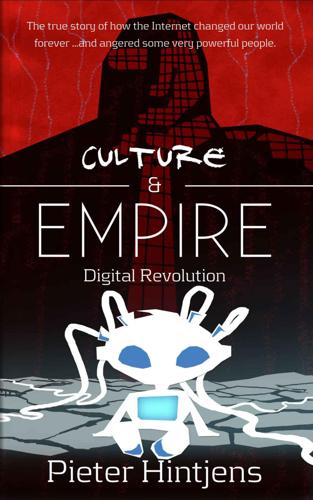
Culture & Empire: Digital Revolution
by
Pieter Hintjens
Published 11 Mar 2013
The blind worship of strong private property rights has allowed many abuses. Broadly, it is an excuse for the rich and powerful to steal public assets and then claim they are the "wealth creators." It has been the plank for many a coup, invasion, and even genocide on grounds to stop "socialist" regimes and their "mad" policies. It blessed the "greed is good" mantra that eviscerated business ethics in the last decades. It protects the patent system from scrutiny and gives it space to grow. It is the curtain that hides the malevolence of the Para-state. And it is fundamentally and powerfully wrong. Wealth does not come from creating more private property.
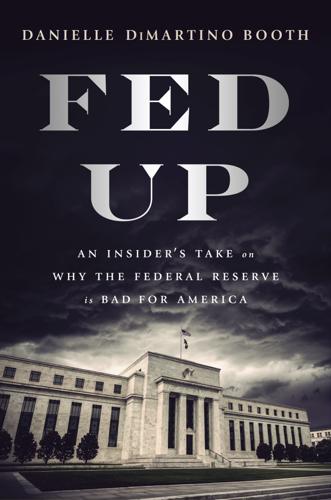
Fed Up: An Insider's Take on Why the Federal Reserve Is Bad for America
by
Danielle Dimartino Booth
Published 14 Feb 2017
In a few short months, I’d learned plenty about how the investment banking world really worked. While in training at DLJ, my class of newly minted MBAs had watched the 1987 movie Wall Street. The corporate raider Gordon Gecko, played by a sleek Michael Douglas, was our role model. We adopted his mantra: “Greed is good.” We believed it, having arrived on Wall Street at the height of the dot-com mania. Yahoo went public, making instant millionaires of those who held its stock. Clients begged to buy into the next big thing. After a few years I was working with hedge funds, mutual funds, and wealthy individuals.
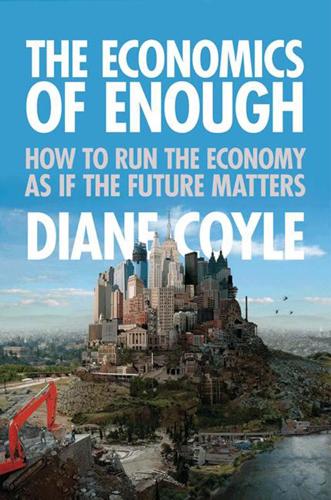
The Economics of Enough: How to Run the Economy as if the Future Matters
by
Diane Coyle
Published 21 Feb 2011
While most traders earning multimillion bonuses no doubt think of themselves as upstanding citizens, the rest of us find it hard to find many shining examples of virtuous behavior on Wall Street or in the City of London. In the notorious words of cinema villain Gordon Gekko (Michael Douglas in Wall Street), “Greed is good” is the motto of the markets, but not of Main Street. Likewise, the cartoon “rational economic man” is a selfish being, whereas real people make choices motivated by the moral sentiments of Adam Smith and illuminated by modern evolutionary biology. But does the immorality of the financial markets and the all-out free market ideology they embody in fact corrupt the rest of the economy?

The Theory of the Leisure Class
by
Thorstein Veblen
Published 10 Oct 2007
CONTENTS Introduction Note on the Text Select Bibliography A Chronology of Thorstein Bunde Veblen THE THEORY OF THE LEISURE CLASS Explanatory Notes INTRODUCTION Veblen’s Pivotal Work ‘Everyone’ appears to acknowledge the importance of The Theory of the Leisure Class, for has not Veblen’s 1899 analysis of the socioeconomics of affluent American societies introduced into the vernacular provocative terms such as ‘conspicuous consumption’ still operative in a world that embraces the notion that ‘greed is good’ and celebrates the Donald Trumps and the Paris Hiltons who clutter our ‘pecuniary culture’? The question remains how well Veblen’s study is really ‘known’—both for what it represents within the range of his own long career and in the newly defined disciplines he guided into the modern world that have had a major impact upon our understanding of the relations between business, industry, and social mores.
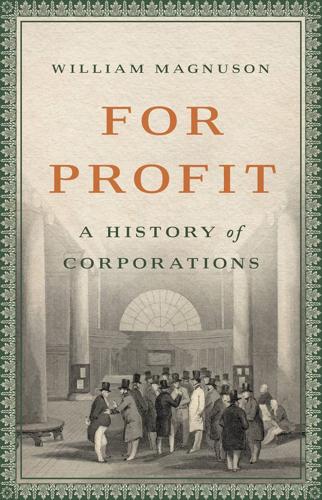
For Profit: A History of Corporations
by
William Magnuson
Published 8 Nov 2022
The age of the corporate raider had begun. I LIKE TO tell my students that private equity is a tale of two Gordons. The first Gordon is Gordon Gekko. In this lens, private equity firms and their managers are real-life versions of Oliver Stone’s immoral banker from the movie Wall Street. They believe that “greed is good,” that all is fair in love and business, and that, in the free market, avarice is a competitive advantage. The Gordon Gekko view of private equity is a morality tale about those who create nothing and yet take everything. The second Gordon is Flash Gordon. Seen in this light, the realm of private equity is not the immoral world of Wall Street.
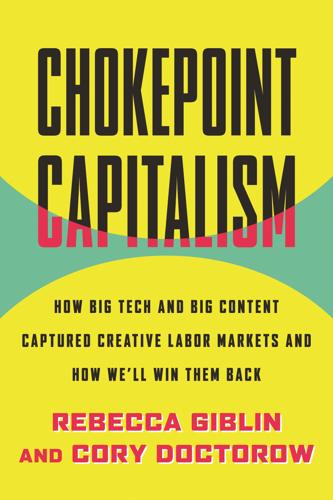
Chokepoint Capitalism
by
Rebecca Giblin
and
Cory Doctorow
Published 26 Sep 2022
Robert Bork and the Chicago crew forced upon us a great forgetting, shattering our capacity to rein corporate power in. It was a breathtaking trick: convincing us that monopolists are good, regulators are bad, and that captured markets are “free.” For forty years, we’ve lived in the Chicago School’s funhouse upside-down land, where greed is good and hourglass-shaped markets make us all better off. By focusing enforcement on “consumer harm,” Borkian antitrust explicitly exempts harms to everyone else from consideration: harms to workers, suppliers, and the environment are all more or less out of scope. And since consumer harm is calculated with incredibly complex (and functionally useless) economic models that can only be created and interpreted by experts in a narrow (and functionally useless) branch of mathematics, we have all been excluded from the debate over market concentration and corporate power for forty years.
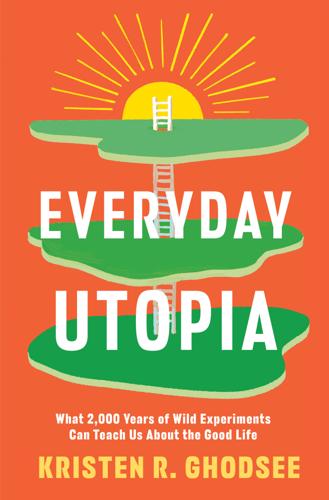
Everyday Utopia: What 2,000 Years of Wild Experiments Can Teach Us About the Good Life
by
Kristen R. Ghodsee
Published 16 May 2023
Picard impatiently tells Offenhouse: “A lot has changed in the last three hundred years. People are no longer obsessed with the accumulation of things. We’ve eliminated hunger, want, the need for possessions. We’ve grown out of our infancy.” Coming only one year after Gordon Gekko’s era-defining “greed is good” speech in the 1987 movie Wall Street, “The Neutral Zone” thumbed its nose at the materialism and selfishness characterized by then popular television shows like Dallas, Dynasty, Falcon Crest, and Lifestyles of the Rich and Famous. In an era saturated with extreme-wealth porn, Star Trek projected one of these so-called “masters of the universe” into a dollar-free future.
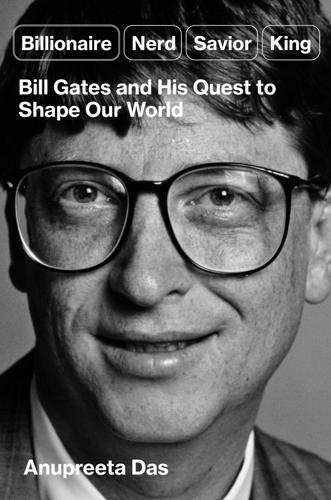
Billionaire, Nerd, Savior, King: Bill Gates and His Quest to Shape Our World
by
Anupreeta Das
Published 12 Aug 2024
In The Bonfire of the Vanities, a bombastic tale of race, class, and politics, Tom Wolfe portrayed New York as a city seething with ambition, greed, and ego—the Masters of the Universe! But nothing established Wall Street as a cesspit of amoral, selfish, and scheming individuals who will stop at nothing to make their payday more than the 1987 movie Wall Street, which made Gordon Gekko a fixture in the public imagination—in particular, the line that “greed is good.” Gekko, played by Michael Douglas, may have been making a more nuanced point about the nature of capitalism, but the line became a damning shorthand for Wall Street. At the same time, a crop of young technology entrepreneurs was swiftly climbing up the ladder of influence and wealth. In addition to Gates and Jobs, there was Michael Dell, a college dropout who founded Dell Computer in 1984, rethinking the way that computers could be built and sold.
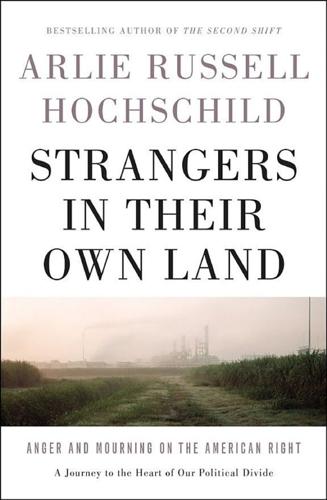
Strangers in Their Own Land: Anger and Mourning on the American Right
by
Arlie Russell Hochschild
Published 5 Sep 2016
Lake Charles produced the airplane fuel that brought me there and the gasoline I was getting around on, and much of this was produced by companies close by. To prepare for my journey, I re-read Ayn Rand’s Atlas Shrugged, a Tea Party bible lauded by the conservative radio pundit Rush Limbaugh and former Fox News television commentator Glenn Beck. Rand describes serving the needy as a “monstrous idea.” Charity, she says, is bad. Greed is good. If Ayn Rand appealed to them, I imagined, they’re probably pretty selfish, tough, cold people, and I prepared for the worst. But I was thankful to discover many warm, open people who were deeply charitable to those around them, including an older, white liberal stranger writing a book. Given its liberal reputation, I worried about telling people I taught at U.C.
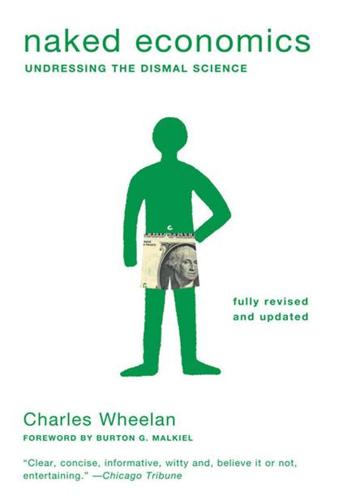
Naked Economics: Undressing the Dismal Science (Fully Revised and Updated)
by
Charles Wheelan
Published 18 Apr 2010
Assuming a 3 percent commission, your agent can make $8,400 for doing virtually nothing or $9,600 for doing many weeks of work. Which would you choose? On the buy side or the sell side, your agent’s most powerful incentive is to get a deal done, whether it is at a price favorable to you or not. Economics teaches us how to get the incentives right. As Gordon Gekko told us in the movie Wall Street, greed is good, so make sure that you have it working on your side. Yet Mr. Gekko was not entirely correct. Greed can be bad—even for people who are entirely selfish. Indeed, some of the most interesting problems in economics involve situations in which rational individuals acting in their own best interest do things that make themselves worse off.
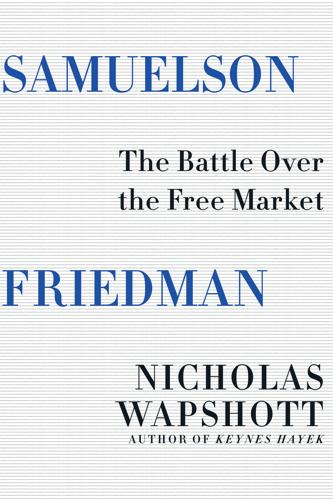
Samuelson Friedman: The Battle Over the Free Market
by
Nicholas Wapshott
Published 2 Aug 2021
“The trouble is that he had been an Ayn Rander,” said Samuelson, referring to Greenspan’s early devotion to the absolutist free marketeer Rand, the patron saint of unbridled, selfish capitalism. “You can take the boy out of the cult, but you can’t take the cult out of the boy. He actually had instruction, probably pinned on the wall: ‘Nothing from this office should go forth which discredits the capitalist system. Greed is good.’ ”35 And although “at bottom Greenspan was an okay character. That’s different from Rand and [Arthur] Burns—both despicable human beings,” Greenspan had displayed recklessness when, “after 1996 [and] clear signs of a stock bubble he (rashly?) refused to engage in any preventative against-the-winds policies. … He had no reason to believe that after the bubble burst he could effectively take corrective action.
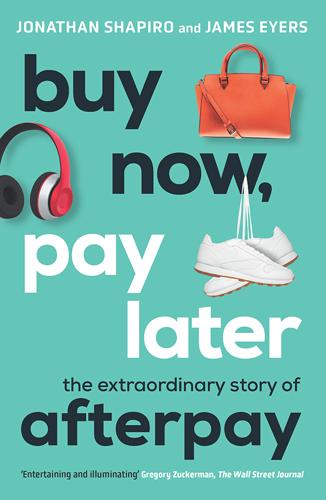
Buy Now, Pay Later: The Extraordinary Story of Afterpay
by
Jonathan Shapiro
and
James Eyers
Published 2 Aug 2021
Brierley started a share-market tip sheet and began investing in the share market when he was still a teenager, and in 1961, while still in his twenties, he registered his own investment company. He soon discovered the value of agitating boards to realise value by breaking up their companies. By the 1970s, he’d matured from a pesky corporate gadfly to a feared asset stripper and corporate raider, wrote Yvonne van Dongen in a May 2011 feature on Brierley. ‘In the “greed is good” 1980s, he was recast more favourably as an entrepreneur, made a knight of the realm and chairman of New Zealand’s largest bank, Bank of New Zealand,’ van Dongen noted.3 Brierley Investments had become the largest company in New Zealand, with investments in 300 companies including Galeries Lafayette in Paris and Air New Zealand.
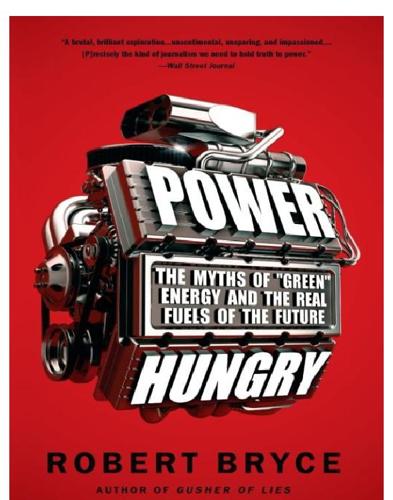
Power Hungry: The Myths of "Green" Energy and the Real Fuels of the Future
by
Robert Bryce
Published 26 Apr 2011
Individuals and entrepreneurs persist in developing new drilling and completion technologies because it’s in their interest to do so. The more they produce from the properties on which they lease or own the minerals, the more money they make. When it comes to getting oil and gas out of the ground, private ownership of mineral rights provides proof positive that greed is good. Without greed—the greed that springs from individuals owning the minerals beneath their feet—the vast oil and natural-gas fields in Texas, California, Oklahoma, Louisiana, and other states would likely remain underdeveloped. Increased domestic gas production—as well as more domestic oil production—will mean more royalty payments to average Americans.
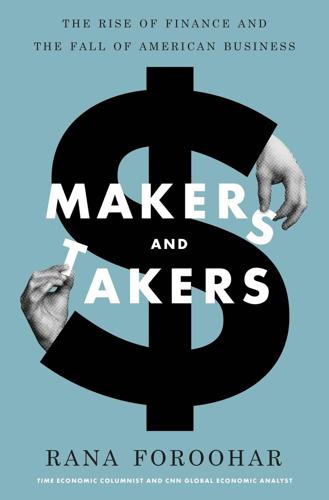
Makers and Takers: The Rise of Finance and the Fall of American Business
by
Rana Foroohar
Published 16 May 2016
By the end of their second semester, however, students shifted to “business manager mode,” placing more emphasis than before on maximizing shareholder returns and less on producing high-quality goods and services—a change that, the survey said, reflected “the powerful place shareholders occupy in the first-year curriculum.” Business schools teach, quite literally, that greed is good, and that rational self-interest is economically and socially beneficial. But if there is anything that the last few years of economic crisis, recession, and slow painful rebound have taught us, it’s that the conventional economic wisdom doesn’t always work. THE MORALITY OF BUSINESS EDUCATION An increasing number of business educators at top schools are concerned not only that MBA programs are churning out number crunchers without consciences, but that the programs themselves no longer uphold the mission of America’s top universities, which has always been to preserve, create, and transmit knowledge to advance the public good.
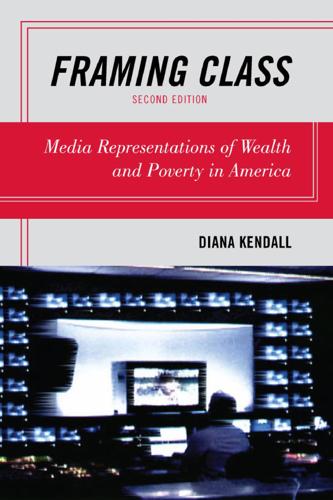
Framing Class: Media Representations of Wealth and Poverty in America
by
Diana Elizabeth Kendall
Published 27 Jul 2005
Leach was the master of price-tag framing, showing viewers some of the lavish residences, luxury vehicles, and exotic travel destinations enjoyed by the world’s wealthiest people.93 At the end of each episode, Leach wished his viewers “champagne wishes and caviar dreams.” As that tag line suggests, the lifestyles of the rich and famous shown on Leach’s program were nothing more than “wishes” or “dreams” for the typical viewer. However, the series supported one of the key tenets of the gospel of materialism—namely, “Greed is good,” as stockbroker Gordon Gekko (played by Michael Douglas) declares in the 1980s film Wall Street. During the economic crisis of the 2000s, in Wall Street 2: Money Never Sleeps, Michael Douglas reprises his role as Gordon Gekko, who emerges twenty years later from prison and seeks to rebuild his career and repair his relationship with his daughter.
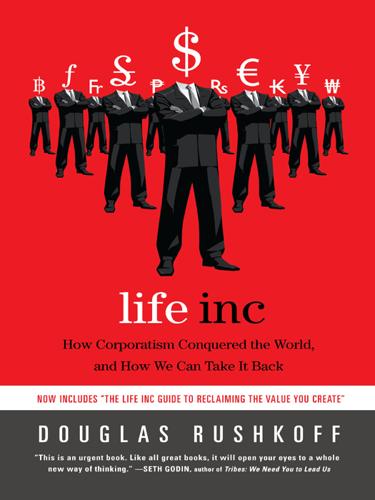
Life Inc.: How the World Became a Corporation and How to Take It Back
by
Douglas Rushkoff
Published 1 Jun 2009
CHAPTER FOUR INDIVIDUALLY WRAPPED Public Relations and the Disconnect from One Another The Self Is the Source “We’re trained in our society to give, but to feel uncomfortable taking or receiving. But if you don’t take, you are denying another person from giving.” Three of the women smile and two others half-nod, glazed over. But the younger one in the corner still appears unconvinced by the life coach leading the session. “What’s that really mean, Eileen?” Amy asks. “Greed is good?” “Well, sure,” answers Eileen, a middle-aged and middleweight woman in a chocolate-brown pantsuit. She doesn’t appear to realize that Amy was quoting from the movie Wall Street. “That’s not how they put it, but yes. We have to learn to accept the bounty that life offers. It’s the key to seeing self as source.
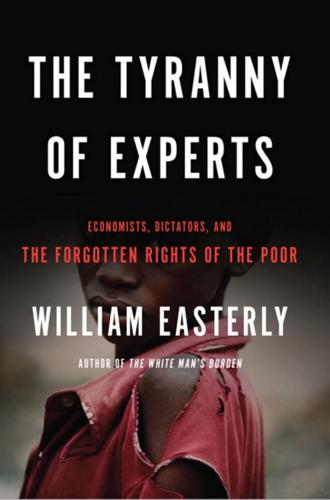
The Tyranny of Experts: Economists, Dictators, and the Forgotten Rights of the Poor
by
William Easterly
Published 4 Mar 2014
Our demand to get our most urgent needs met is what makes the goods profitable. Smith’s Invisible Hand was one of the first introductions of the revolutionary concept of “spontaneous order,” which we discussed in Chapter Two as today including biological evolution, the Internet, language, and social norms. The misunderstanding is that Smith believed “greed is good,” which triggers revulsion against his Invisible Hand on the left. Some on the right have the misunderstanding that Smith gives a blanket endorsement to all profits by the existing businessmen. Actually, Smith held many negative views about both the rich and businessmen. In his first classic, The Theory of Moral Sentiments, published in 1759, Smith spoke of the rich as a “few lordly masters,” consumed by “vain and insatiable desires,” not to mention their “natural selfishness and rapacity.”9 As for businessmen, Smith in The Wealth of Nations spoke of “the mean rapacity, the monopolizing spirit, of merchants and manufacturers,” which sounds like something he had personally observed in Glasgow.
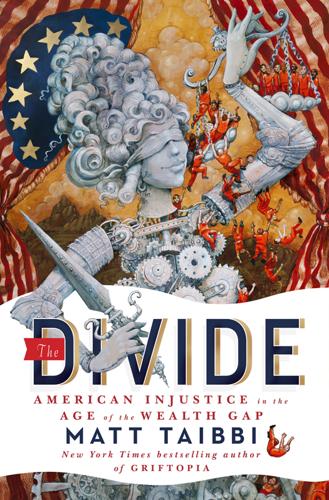
The Divide: American Injustice in the Age of the Wealth Gap
by
Matt Taibbi
Published 8 Apr 2014
A more definitive portrait of modern finance would probably be the movie Wall Street, which had a profound effect on the city’s business culture, although probably not the effect its heavy-handed lefty director Oliver Stone expected. While the rest of America understood Michael Douglas’s iconic Gordon Gekko character as a villain, and saw his famed “greed is good” speech as incisive satire, many aspiring Wall Street traders sincerely thought—and still think—that Gekko was the movie’s hero. In the early 1990s, Wall Street saw a massive influx of young Gekko wannabes who thought waiting any amount of time to get fabulously wealthy was for losers, or at the very least for people who had never read Sun Tzu.
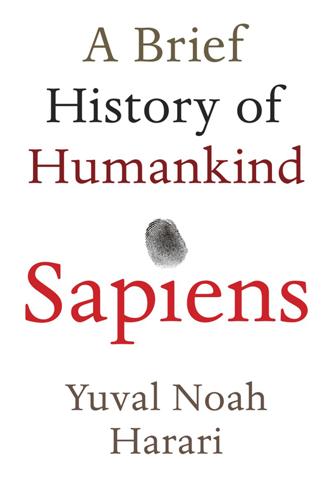
Sapiens: A Brief History of Humankind
by
Yuval Noah Harari
Published 1 Jan 2011
Yet Smith’s claim that the selfish human urge to increase private profits is the basis for collective wealth is one of the most revolutionary ideas in human history – revolutionary not just from an economic perspective, but even more so from a moral and political perspective. What Smith says is, in fact, that greed is good, and that by becoming richer I benefit everybody, not just myself. Egoism is altruism. Smith taught people to think about the economy as a ‘win-win situation’, in which my profits are also your profits. Not only can we both enjoy a bigger slice of pie at the same time, but the increase in your slice depends upon the increase in my slice.

People, Power, and Profits: Progressive Capitalism for an Age of Discontent
by
Joseph E. Stiglitz
Published 22 Apr 2019
Typically, there may be restraints in their dealing directly with the agency from which they came. But they can give advice to their corporate colleagues about what to say to whom—and let their presence be felt in a variety of other ways. This is an arena where what is required above all else is the right norms and ethics. And the greed-is-good ethic of twenty-first-century American capitalism works against creating the right norms. An ex-public official, especially one with further political ambitions, should worry that accepting a large check from Goldman Sachs in exchange for a short speech might look unseemly. And this might be especially so for an ex-secretary of treasury or state or the president.
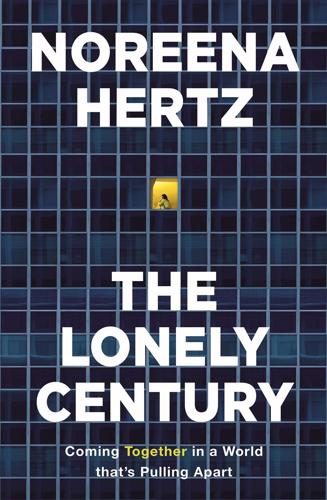
The Lonely Century: How Isolation Imperils Our Future
by
Noreena Hertz
Published 13 May 2020
For it fundamentally changed how we saw each other and the obligations to each other that we felt, with its valorising of qualities such as hyper-competitiveness and the pursuit of self-interest, regardless of the wider consequences. It is not that humans are essentially selfish – research in evolutionary biology makes clear that we are not.52 But with politicians actively championing a self-seeking, dog-eat-dog mindset, and ‘greed is good’ (the maxim Gordon Gekko famously uttered in the 1987 movie Wall Street) serving as neoliberalism’s bumper sticker, qualities such as solidarity, kindness and caring for each other were not only undervalued, but deemed irrelevant human traits. Under neoliberalism we were reduced to homo economicus, rational humans consumed only by our own self-interest.
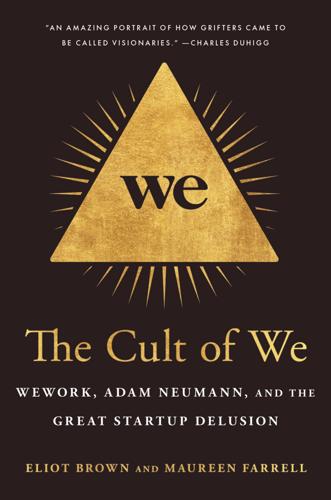
The Cult of We: WeWork, Adam Neumann, and the Great Startup Delusion
by
Eliot Brown
and
Maureen Farrell
Published 19 Jul 2021
It signed a large lease for more than 120,000 square feet at 222 Broadway, where its own offices would sit alongside space rented by members. The boxy lower Manhattan building was where Oliver Stone’s film Wall Street—the 1980s critique of corporate avarice—was filmed. (Neumann’s office was down the hall from where Gordon Gekko proclaimed that “greed is good.”) Growing bigger meant the company was burning through the Benchmark cash. Neumann had left the task of additional fund-raising until perilously late in the process. By this time, WeWork had one or two months of cash—at most—left in its accounts. Fund-raising is always a high-wire act for money-losing startups, and Neumann was habitually late to lots of things, so this wasn’t terribly out of character.

England: Seven Myths That Changed a Country – and How to Set Them Straight
by
Tom Baldwin
and
Marc Stears
Published 24 Apr 2024
The economist Duncan Weldon recalls that ‘trading volumes soared from around 50 per cent of all listed stocks in 1985 to 90 per cent by 1990, with the value of companies listed on the exchange rising by around 25 per cent over the same period’.26 Thatcher also privatised industries that had first been brought into public control in the 1930s, transforming both their value and their ethos as she did so. In the case of British Telecom, the change was clear for all to see as it promptly abandoned the ‘British’ brand to go global and become ‘BT’. This greed-is-good culture was summed up by the comedian Harry Enfield’s Cockney ‘Loadsamoney’ and the Chelsea football fans who waved £20 notes when they went to away games in the North. Thatcher’s real genius, however, had been to cover all of this modernising in the most reassuringly English of wrappers. It was akin to a lavender-scented grandmother offering you a slice of sponge cake laced with amphetamine.
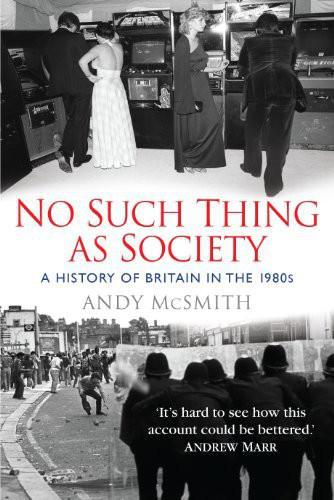
No Such Thing as Society
by
Andy McSmith
Published 19 Nov 2010
The pursuit of income equality will turn this country into a totalitarian slum.’13 The audiences for Caryl Churchill’s verse play, Serious Money, which opened at the Royal Court in spring 1987, were notoriously swollen by the City types that the drama satirized, who all loved it. The crooked American financier Ivan Boesky, who told an audience at Berkeley University that ‘greed is healthy’, was seen as the voice of the times in the USA. In 1989, Gordon Brown wrote an assessment of Thatcher’s record, to which he gave the title ‘Where Greed is Good’. Yet, having grown up in reasonable comfort, and having married a rich man when she was young, Mrs Thatcher herself was not greedy; the political historian, Mark Garnett, who is a long way from being a Thatcherite, concluded that ‘a verdict of “greedy” could only be brought in by a jury which was biased against her for other reasons’.14 It would be an exercise in futility to try to measure whether the British were more or less greedy after 1985 than in other periods since the war.
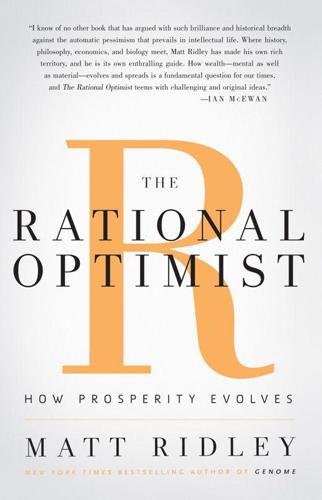
The Rational Optimist: How Prosperity Evolves
by
Matt Ridley
Published 17 May 2010
Mercantilism said that exports made you rich and imports made you poor, a fallacy mocked by Adam Smith when he pointed out that Britain selling durable hardware to France in exchange for perishable wine was a missed opportunity to achieve the ‘incredible aug mentation of the pots and pans of the country’. Marxism said that capitalists got rich because workers got poor, another fallacy. In the film Wall Street, the fictional Gordon Gekko not only says that greed is good; he also adds that it’s a zero-sum game where somebody wins and somebody loses. He is not necessarily wrong about some speculative markets in capital and in assets, but he is about markets in goods and services. The notion of synergy, of both sides benefiting, just does not seem to come naturally to people.
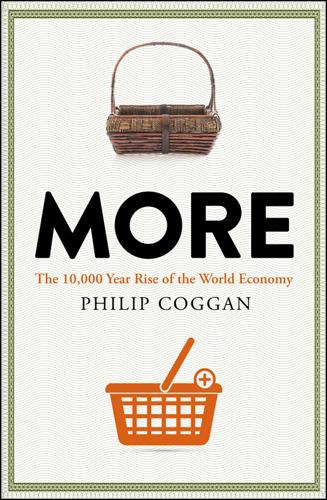
More: The 10,000-Year Rise of the World Economy
by
Philip Coggan
Published 6 Feb 2020
Boone Pickens, Carl Icahn and Ivan Boesky, made headlines by taking significant stakes in businesses in a practice known as “greenmail”; either the existing management would buy them out at a profit, or another predator would use their stake as the basis of a deal. The process was dramatised in the film Wall Street, in which Michael Douglas’s character, Gordon Gekko, proclaims that “Greed is good.” The main function of the takeover wave was to break up conglomerates and force companies to focus on a single industry. (The argument was that conglomerates were inefficient; shareholders could get the benefits of diversification by investing in a wide range of companies.)30 The value of takeover deals in the US in the 1980s was $1.3trn and 28% of the country’s largest 500 companies in 1980 had been bought by the end of the decade.
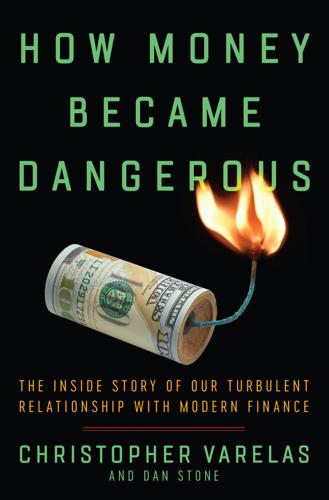
How Money Became Dangerous
by
Christopher Varelas
Published 15 Oct 2019
As a result of that emergence, the financial services industry became an end in itself over the next three decades. For better or worse, it became the star of the show, rather than the hidden operator of the lights and curtain. Steinberg’s attack on Disney in 1984 was one of the first moments in which the greed-is-good Wall Street culture of the ’80s stepped into the public spotlight. Because Disney was a beloved institution, this threat to its existence was major national news, and it provided a swift education for many Americans in this previously unfamiliar world. Wall Street became such a forceful presence in the national consciousness that, only three years later, Oliver Stone didn’t hesitate to infuse his film with terms like “golden parachutes” and lines like “There is no nobility in poverty.”
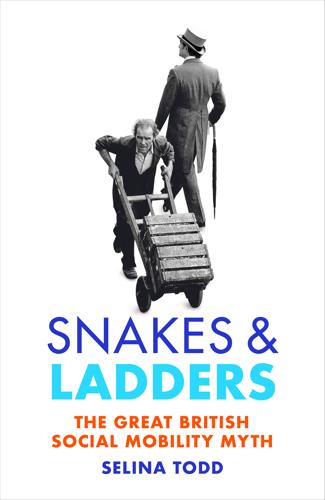
Snakes and Ladders: The Great British Social Mobility Myth
by
Selina Todd
Published 11 Feb 2021
Migration, Opportunity Hoarding and Regional Social Mobility in the UK’, National Institute Economic Review, vol. 240, no. 1, 2017. 21 Savage et al., Social Class in the 21st Century, pp. 267–70. 22 Mass Observation Archive: Replies to Spring 2016 Directive on Higher Education, N5744. 23 Stephen Armstrong, The New Poverty, Verso, 2017, p. 152. 24 Quoted in ibid, p. 153. 25 Mass Observation Archive: Replies to Spring 2016 Directive on Social Mobility, C5706. 26 Ibid. 27 ‘Council funds for libraries, museums and galleries cut by nearly £400m’, Independent, 25 January 2019, https://www.independent.co.uk/news/uk/home-news/libraries-museums-arts-galleries-funding-recourses-county-council-network-cnn-social-care-a8741271.html, consulted 30 January 2019. 28 Mass Observation Archive: Replies to Spring 2016 Directive on Social Mobility, C5706. 29 Office of National Statistics, ‘Percentage of graduates in non-graduate roles, parts of the UK, 2015–2017’, Annual Population Survey, ONS, 2018, https://www.ons.gov.uk/employmentandlabourmarket/peopleinwork/employmentandemployeetypes/adhocs/008381percentageofemployedgraduatesinnongraduaterolespartsoftheuk2015to2017. 30 Danny Dorling, Inequality and the 1%, Verso, 2015, p. 107. 31 Mass Observation Archive: Replies to Spring 2016 Directive on Social Mobility, J5734. 32 Social Mobility Commission, Time for Change: An assessment of government policies on social mobility, 1997–2017, HMSO, 2017, p. 4; Louise Crewe and Annie Wang, ‘Gender Inequalities in the City of London Advertising Industry’, Environment and Planning A: Economy and Space, vol. 50, no. 3, 2018, pp. 671–88. 33 Savage et al., Social Class in the 21st Century, chapter 8. 34 Katharine Burn and Ann Childs, ‘Responding to poverty through education and teacher education initiatives’, Journal of Education for Teaching, Vol. 42, no. 4, 2016. 35 Quoted in ‘Boris Johnson evokes Thatcher spirit with greed is good speech’, Guardian, 27 November 2013, https://www.theguardian.com/politics/2013/nov/27/boris-johnson-thatcher-greed-good, consulted 5 June 2016. 36 Carla Ayrton et al., Monitoring poverty and social exclusion 2016, Joseph Rowntree Foundation, 2017. 37 Social Mobility Commission, Time for Change, p. 5. 38 Quoted in Diane Reay, ‘Social mobility, a panacea for our times’, British Journal of Sociology of Education, vol. 34, nos 5–6, 2013, p. 667. 39 Paul Bolton, ‘Education: historical statistics’, Note SN/SG/4252, House of Commons Library, 2012, https://dera.ioe.ac.uk/22771/1/SN04252.pdf. 40 On the impact of recession on private school rolls after 2007, see ‘Demand for state schools rises as recession hits’, Guardian, 19 December 2008, https://www.theguardian.com/education/2008/dec/18/schools-private-recession, consulted 5 March 2018; ‘Recession forces many to give up private schools’, Telegraph, 23 November 2008, and ‘Eton headmaster: Private schools “may close”’, Telegraph, 27 January 2009.
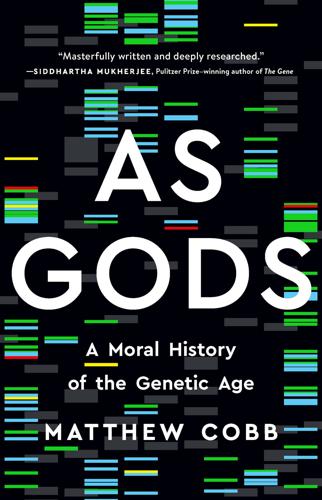
As Gods: A Moral History of the Genetic Age
by
Matthew Cobb
Published 15 Nov 2022
Everybody and his brother starts jumping into the pool with ‘me-too’ companies. Competition becomes intense. Company evaluations either decline or level off. The money gusher begins to dry up.36 The business atmosphere of the 1980s could be summed up by the misquoted words of trader Gordon Gekko in the 1987 film Wall Street: ‘Greed is good.’37 But by the end of the decade that attitude was beginning to rankle in certain quarters and even The Economist was bewailing ‘the money-guzzling genius of biotechnology’. By that point, $10 billion had been invested in the field and 150 companies had gone public, but although they raised an additional $4 billion, only Genentech was making a sustained profit and that was ‘disappointingly small’, sniffled the bosses’ magazine.38 The financial excitement in the United States was above all a function of the uniquely American layer of venture capital speculators that appeared after the Second World War and had no true equivalent in other countries.
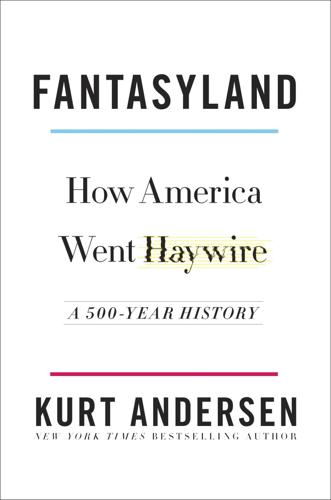
Fantasyland: How America Went Haywire: A 500-Year History
by
Kurt Andersen
Published 4 Sep 2017
For them, the ultraindividualist liberation of the 1960s and ’70s had generated a kind of fundamentalist religious faith in markets, and thus an absolute knee-jerk opposition to any attempts by government to make markets work better or more fairly, and to taxes in general. If the new hypercapitalism was working well for you, even if you had no fervent ideological faith in markets, what had previously come across as simple selfishness could now be cloaked in righteousness. “Greed is good,” the fictional Gordon Gekko declared in 1987, but now real people insisted that their moneymaking lust and skill were not merely useful in the aggregate but made them virtuous individually. The year after Wall Street came out, Reagan was reelected in one of the biggest landslides in history. Oh, Ronald Reagan, lovable, shrewd, twinkly, out-of-it, blithe, brilliant Ronald Reagan.
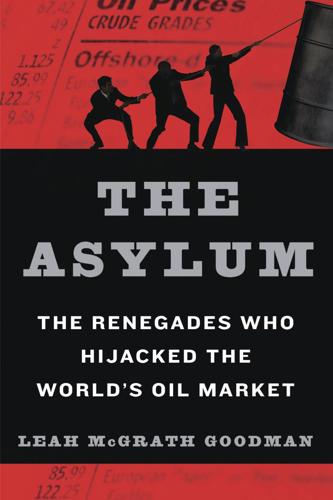
The Asylum: The Renegades Who Hijacked the World's Oil Market
by
Leah McGrath Goodman
Published 15 Feb 2011
People have this romantic, menopausal idea about our market, that it’s historic and we’re rugged individualists. Forget about it. Most of us don’t see it that way. I don’t care about the exchange. Nobody does. We’ve never taken a step back and seen this as something bigger. We are traders. We only think in the short term. There’s a line from the movie Wall Street—‘Greed is good.’ We were greedy. But here’s the thing: Nymex is a microcosm of life. We’re different ethnicities, from different backgrounds. We all have our own agendas. And we’re all battling it out in one place, just trying to make it.” Living at the Plaza in New York, Sahn still trades and keeps in touch with old friends like Mark Fisher, who owns a home near Sahn’s in the Hamptons.
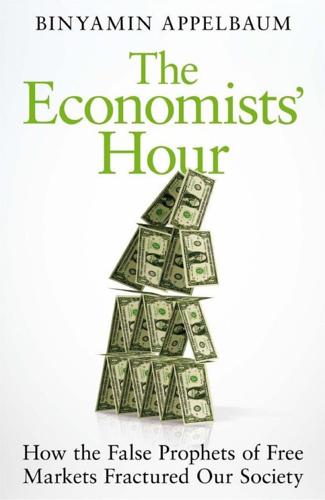
The Economists' Hour: How the False Prophets of Free Markets Fractured Our Society
by
Binyamin Appelbaum
Published 4 Sep 2019
As productivity increased, wealth could be accumulated by increasing the size of the economy. Being selfish could be good for everyone. It’s worth emphasizing that Smith did not think selfishness was always good for society. But economics has roughly the same relationship with its founding texts as the world’s other great religions. Smith’s nuanced accounting became “Greed is good,” which has proved to be a world-conquering credo, among both the wealthy and the many who aspire to join them. Proponents of faith in markets also developed a close relationship with the corporate elite, which was not as inevitable as it may seem in retrospect. Conservative economists like Friedman and his close friend George Stigler initially expressed fear of corporate power and argued that restraining corporate concentration was one of the few legitimate functions of government.
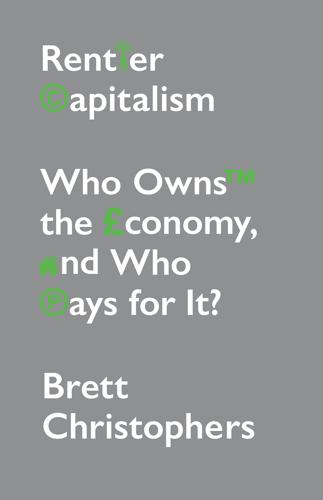
Rentier Capitalism: Who Owns the Economy, and Who Pays for It?
by
Brett Christophers
Published 17 Nov 2020
Then there are the hand signals: clenched fists, hands with one finger raised, others with two or three raised. And sometimes, in the background, we see screens, whole banks of them, across which flicker endless rows and columns of long numbers. What does the image depict? The stock market, of course – that quintessential expression of testosterone-fuelled, greed-is-good, 1980s capitalism. The UK is home to one of the world’s leading stock markets – the London Stock Exchange – and one of the world’s leading stock-market operators – London Stock Exchange Group plc (LSEG), which, in addition to the eponymous London exchange, also owns and operates Italy’s leading financial exchange, Borsa Italiana.
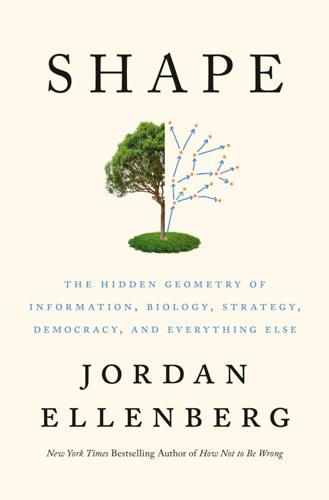
Shape: The Hidden Geometry of Information, Biology, Strategy, Democracy, and Everything Else
by
Jordan Ellenberg
Published 14 May 2021
To get to the higher peak you’ll have to endure a walk through the valley, maybe quite a long one—you have to go down to get all the way up. Gradient descent is a “greedy algorithm,” so-called because at each moment it takes the step that maximizes short-term advantage. Greed is one of the chief fruits on the tree of deadly sins, but then again, according to a popular capitalist saying, greed is good. In machine learning it would be more accurate to say “greed is pretty good.” Gradient descent can get caught in a local optimum, but in practice this seems not to happen as much as it theoretically might. And there are ways around a local optimum; you just have to momentarily suspend your greed.
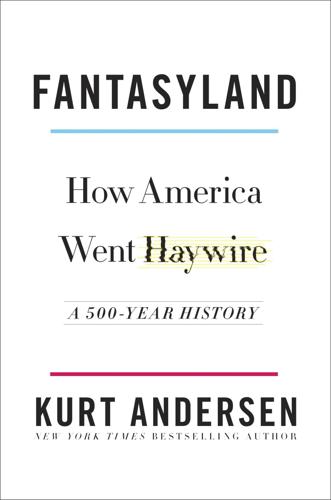
Fantasyland
by
Kurt Andersen
Published 5 Sep 2017
For them, the ultraindividualist liberation of the 1960s and ’70s had generated a kind of fundamentalist religious faith in markets, and thus an absolute knee-jerk opposition to any attempts by government to make markets work better or more fairly, and to taxes in general. If the new hypercapitalism was working well for you, even if you had no fervent ideological faith in markets, what had previously come across as simple selfishness could now be cloaked in righteousness. “Greed is good,” the fictional Gordon Gekko declared in 1987, but now real people insisted that their moneymaking lust and skill were not merely useful in the aggregate but made them virtuous individually. The year after Wall Street came out, Reagan was reelected in one of the biggest landslides in history. Oh, Ronald Reagan, lovable, shrewd, twinkly, out-of-it, blithe, brilliant Ronald Reagan.
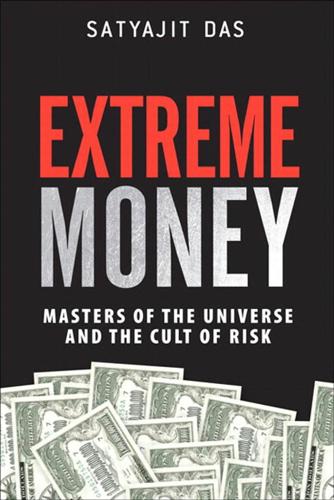
Extreme Money: Masters of the Universe and the Cult of Risk
by
Satyajit Das
Published 14 Oct 2011
The New York Times dubbed Rand the “novelist Laureate” of the Reagan administration, citing her influence on Greenspan.13 Paul Samuelson, the economist, recalled that: The trouble is that [Greenspan] had been an Ayn Rander. You can take the boy out of the cult but you can’t take the cult out of the boy. He actually had instructions, probably pinned on the wall: “Nothing from this office should go forth which discredits the capitalist system. Greed is good.”14 Like his mentor, Greenspan was his own splendid creation. Celebrity Central Banking Greenspan reveled in the age of celebrity central bankers: “The only central bankers ever to achieve...rock star status.... No one has yet credited Alan Greenspan with the fall of the Soviet Union or the rise of the Boston Red Sox, although both may come in time as the legend grows.”15 In 2000, U.S.
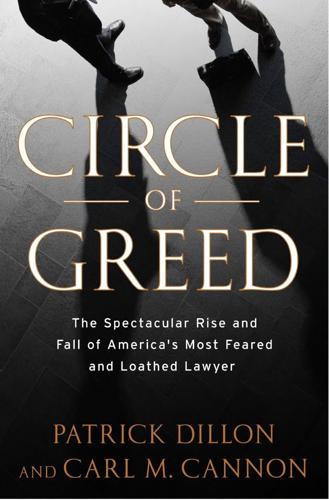
Circle of Greed: The Spectacular Rise and Fall of the Lawyer Who Brought Corporate America to Its Knees
by
Patrick Dillon
and
Carl M. Cannon
Published 2 Mar 2010
The reality of the past two years, at least the way he saw it, was that the courts and lawmakers had made it easier to get away with fraud. When men like John Doerr uttered phrases such as “growth is good,” they meant that innovation, jobs, and profits were good for the U.S. economy. But that wasn’t how Lerach interpreted it. Greed is good—that was what Lerach heard. “As long as greed is a growth industry we’re in business.” Mel Weiss had said that, such a long time ago. Now the skids had been greased. Greed was definitely going to grow. * Wilson’s departure from Washington created a vacancy that was filled after a brief interregnum—by Feinstein—in a 1992 special election
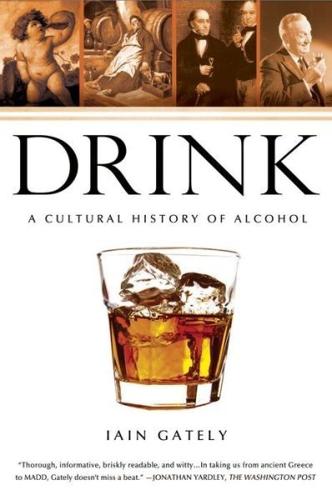
Drink: A Cultural History of Alcohol
by
Iain Gately
Published 30 Jun 2008
The old order is represented by Bud’s father, a union leader at Bluestar Airlines, who does his business with the men he represents over a few beers in the local bar. Gekko aims to take over Bluestar in order to break it into pieces and rob its pension fund, and Bud is forced to choose between old-fashioned beer-drinking, metal-bashing America and the greed-is-good philosophy of Gordon Gekko. After a bottle of whiskey he decides to do the right thing—intoxication leads to an epiphany that restores his moral perspective. There were genuine monetary benefits to be gained from alcohol-free workplaces. Companies that introduced such policies found their workers had fewer accidents, thus reducing insurance premiums and compensation payments, and that they had to sack fewer workers for drunkenness, enabling savings in termination costs and the expenses of recruiting replacements.
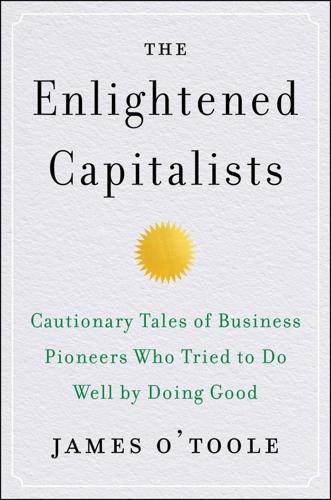
The Enlightened Capitalists
by
James O'Toole
Published 29 Dec 2018
For at least another hundred years we must pretend to ourselves and to everyone that fair is foul and foul is fair; for foul is useful and fair is not. Avarice and usury and precaution must be our gods for a little longer still. For only they can lead us out of the tunnel of economic necessity into daylight. Hence, until universal prosperity is achieved, Keynes argued, greed is good and the road to heaven is paved with bad intentions, because the profit motive creates the wealth of nations and civilizations. That is a major reason why leaders of companies who have sought to engage in social activities not directly intended to produce profit have been viewed, at best, as overly idealistic or misguided.
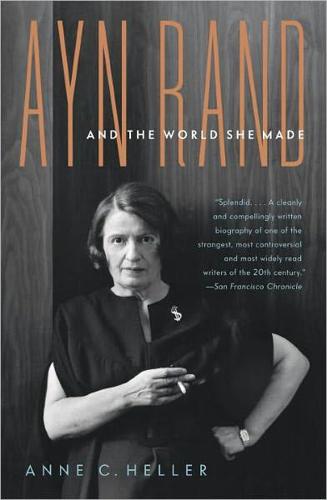
Ayn Rand and the World She Made
by
Anne C. Heller
Published 27 Oct 2009
Kennedy inaugurated an era of unparalleled American prosperity, new cultural freedoms, increased spending on social programs, and the beginnings of a distant, controversial war, Nathaniel and, to a lesser degree, Barbara established a smaller, safer sphere for their benefactor to inhabit. The proud sufferer asked her two friends not to discuss her depression with the others, so most of her followers knew little or nothing about the extremity of her moods. But they understood that she, and they, were almost universally derided as hate-mongering greed-is-good neo-Fascists and social Darwinists, when they knew themselves to be visionaries of freedom and progress. Some lost friends. Some, like Leonard Peikoff, experienced their parents’ disapproval or estrangement. “How is it possible that we can be accused of advocating, politically, the exact opposite of what we stand for?”
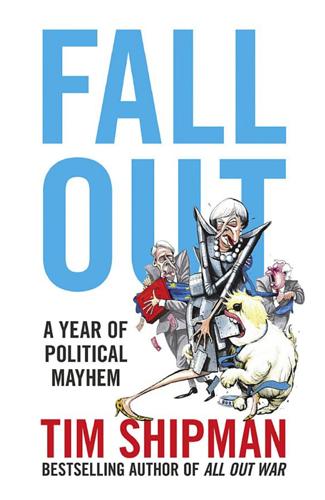
Fall Out: A Year of Political Mayhem
by
Tim Shipman
Published 30 Nov 2017
On a WhatsApp group shared by Eurosceptic MPs, Sir Gerald Howarth wrote with withering sarcasm, ‘A man of his immense ability can surely speak for Cheshire and London before lunch, advise BlackRock over lunch and tender his invaluable advice to the House after lunch before holding a dinner party for the bien pensant remainians of Notting Hill in the evening. Sorted.’ Iain Duncan Smith posted a picture of Michael Douglas’s character from the film Wall Street, the celluloid monument to eighties excess: ‘Hmmm … why do I keep thinking of Gordon Gekko … greed is good.’ Osborne’s reputation for ruthlessness was confirmed when it emerged that he had recommended the political journalist Matthew d’Ancona to Evgeny Lebedev, the owner of the Standard. D’Ancona was on the verge of getting the job when Osborne decided he fancied it himself.1 Seeing the benefit of having a big name in the post, Lebedev was ‘immediately sold on the idea’.

The Rough Guide to New York City
by
Rough Guides
Published 21 May 2018
Trinity’s colonial graveyard also sees a steady stream of visitors, mainly thanks to blockbuster musical Hamilton; in the south churchyard, flowers often cover the tombs of Eliza and Alexander Hamilton, while Revolutionary War spy Hercules Mulligan (another character in the musical) lies nearby. Eliza’s sister, Angelica Schuyler Church (another beloved character from the musical), is buried at the back of the north churchyard. Greed is good: the rise and fall of Wall Street Admired, feared and generally despised by most Americans at the time, J.P. Morgan is considered the godfather of US merchant banking (that is, banking for governments and big companies rather than individuals), presiding over New York’s gradual replacement of London (largely bailed out by Morgan-led banks during World War I) as the world’s biggest financial market from his base on Wall Street between 1858 and 1913.
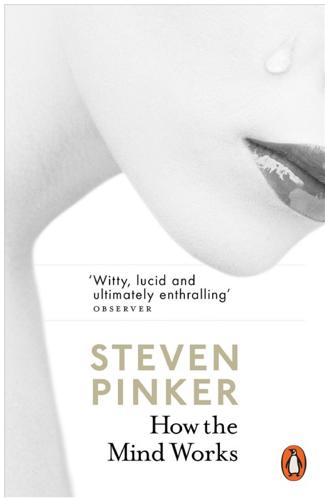
How the Mind Works
by
Steven Pinker
Published 1 Jan 1997
One subtext is, Don’t hate the wolf that just ate Bambi; he’s acting for the greater good. The other is, Protecting the environment is nature’s way; we humans had better shape up. The opposing theory of the selfish gene has been bitterly attacked out of the fear that it vindicates the philosophy of Gordon Gekko in Wall Street: greed is good, greed works. Then there are those who believe in selfish genes but urge us to face up to the sad truth: at heart, Mother Teresa is really selfish. I think moralistic science is bad for morals and bad for science. Surely paving Yosemite is unwise, Gordon Gekko is bad, and Mother Teresa is good regardless of what came out in the latest biology journals.
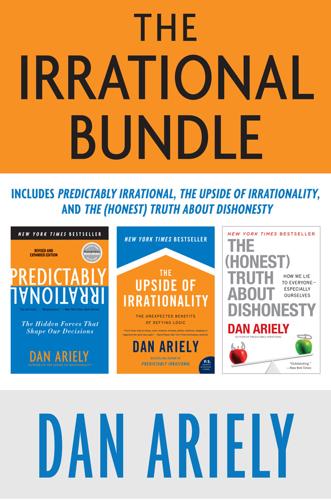
The Irrational Bundle
by
Dan Ariely
Published 3 Apr 2013
The scary thought is that if we did the experiments with nonmonetary currencies that were not as immediately convertible into money as tokens, or with individuals who cared less about their honesty, or with behavior that was not so publicly observable, we would most likely have found even higher levels of dishonesty. In other words, the level of deception we observed here is probably an underestimation of the level of deception we would find across a variety of circumstances and individuals. Now suppose that you have a company or a division of a company led by a Gordon Gekko character who declares that “greed is good.” And suppose he used nonmonetary means of encouraging dishonesty. Can you see how such a swashbuckler could change the mind-set of people who in principle want to be honest and want to see themselves as honest, but also want to hold on to their jobs and get ahead in the world? It is under just such circumstances that nonmonetary currencies can lead us astray.
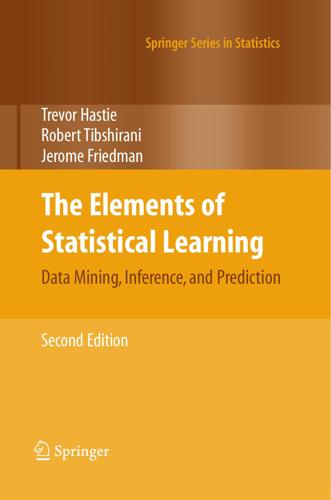
The Elements of Statistical Learning (Springer Series in Statistics)
by
Trevor Hastie
,
Robert Tibshirani
and
Jerome Friedman
Published 25 Aug 2009
Sparsity and smoothness via the fused lasso, Journal of the Royal Statistical Society, Series B 67: 91–108. Tibshirani, R., Walther, G. and Hastie, T. (2001b). Estimating the number of clusters in a dataset via the gap statistic, Journal of the Royal Statistical Society, Series B. 32(2): 411–423. Tropp, J. (2004). Greed is good: algorithmic results for sparse approximation, IEEE Transactions on Information Theory 50: 2231– 2242. References 725 Tropp, J. (2006). Just relax: convex programming methods for identifying sparse signals in noise, IEEE Transactions on Information Theory 52: 1030–1051. Valiant, L. G. (1984).
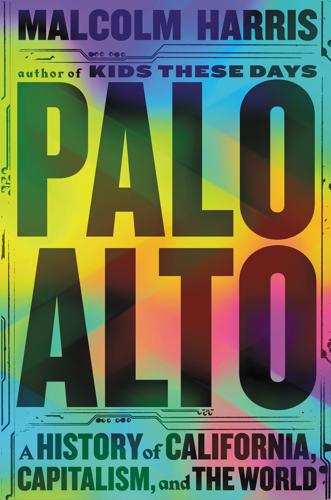
Palo Alto: A History of California, Capitalism, and the World
by
Malcolm Harris
Published 14 Feb 2023
They weren’t serving the public, and they didn’t need approval from clean-shaven authoritative professor-administrators like Fred Terman or military bureaucrats like Bob Taylor, which left them and the cohort of tech workers they hired free to smell bad. (Historian Charles Petersen describes the transition as one from “bureaucratic” to “nerd” masculinity.)41 These repellent young men were the tools that got capital from the crisis of the 1960s to the “greed is good”’80s, and an unwillingness to wash and feed oneself began to seem indicative of programming skill and economic value. Unheard-of sums flowed through these men; what did Gates and Jobs represent to the money they attracted? The Xerox PARC visit infused Apple’s Mac with years of prized research and development, and they didn’t do it because they liked the boss—Jobs literally stunk up the place—or even for the opportunity to invest.
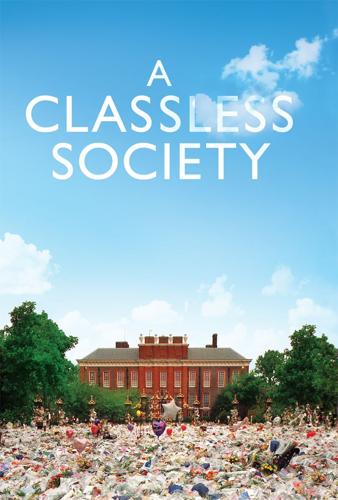
A Classless Society: Britain in the 1990s
by
Alwyn W. Turner
Published 4 Sep 2013
Baddiel was convulsed with fits of laughter, and later reflected: ‘I think it was at that point that the eighties fell away for me, or at least that seriousness fell away for me, seriousness as in that adolescent, or post-adolescent, concern about everything. I was never going to be intense again.’ Seriousness had indeed been the keynote of the 1980s counterculture. The era may have seen the rise of yuppies, power-dressing and the creed of ‘greed is good’, as articulated by Gordon Gecko in the film Wall Street, but for many the experience was very different. It was a decade that started and ended with devastating recessions, and which seemed to lurch from one apocalyptic fear to another: the Cold War rhetoric of Margaret Thatcher and American president Ronald Reagan was matched by dire warnings about environmental destruction – whether centred on acid rain, the depletion of the ozone layer or global warming – while the arrival of AIDS threatened a health crisis of proportions not seen for decades.
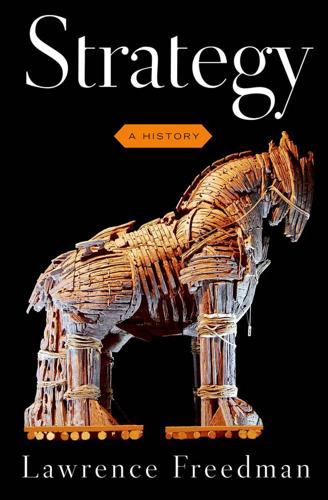
Strategy: A History
by
Lawrence Freedman
Published 31 Oct 2013
If equally matched, fight, and if not, split and re-evaluate.” Wall Street was a morality tale involving junior stockbroker Bud Fox caught between his blue-collar father, a foreman and trade unionist who represented the virtues of hard and honest labor, and the ruthless, cynical Gordon Gekko, a corporate raider whose motto was “greed is good.” Bud became wealthy by following Gekko’s methods until he realized that a plan to buy the airline where his father worked was all about asset-stripping. The movie appeared in 1987, the year of a Wall Street crash, and seemed to capture the financial mindset that had created both financial mayhem and a loss of moral bearings.
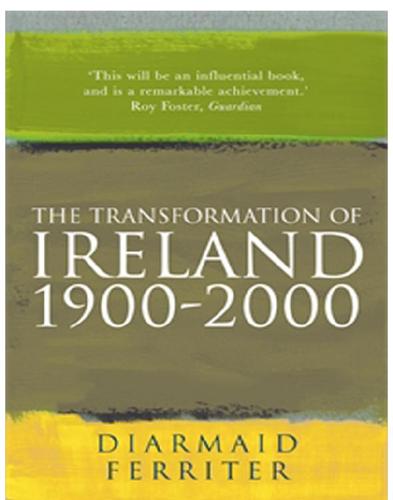
The Transformation Of Ireland 1900-2000
by
Diarmaid Ferriter
Published 15 Jul 2009
At a time when Margaret Thatcher was intent on destroying the trade union movement in Britain and proudly proclaimed that ‘there is no such thing as society’ the political leadership of this state opted for partnership between government, employees and unions. At the same time, many community organisations – some of the most important attached to the Catholic Church – ensured that the principle of ‘greed is good’ could not be elevated into a core principle of any political party, not even the allegedly Thatcherite Progressive Democrats.52 This raises the question of ideology and the extent to which, historically, there were any real differences between the Irish political parties. James Dillon asked the Dáil in 1951: ‘what ideological differences, if words retain their meaning, divide any two deputies on any side of this house?’